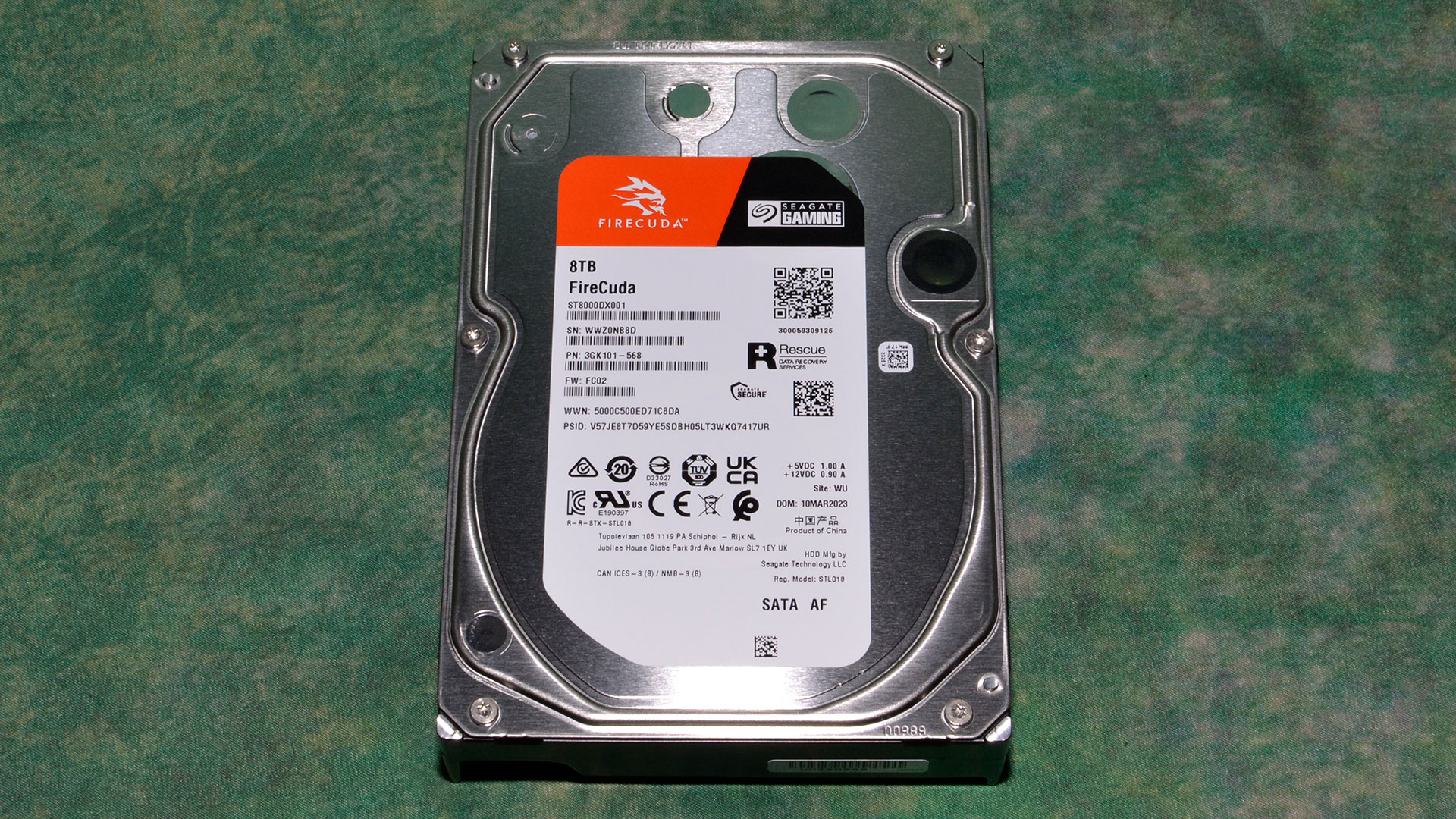
The Seagate FireCuda is a mechanical hard drive done right, providing expected performance and being backed by Seagate’s excellent warranty. Seagate didn't compromise with this design, using high-performance CMR technology paired with a 7200 RPM spindle speed. It also offers the sweet spot of 8TB of capacity at a reasonable price per TB, making it perfect for general desktop use. There are reasons to drop down to 5400/5640 RPM if you have concerns about cost, heat, and noise, and that’s where the 8TB WD Blue would come in. However, the FireCuda offers the best all-around package available at this time.
Seagate hasn't had the best reputation for HDD reliability in the past, but it’s difficult to find fault with its warranty. The Seagate FireCuda has the standard five-year warranty that includes Seagate’s three-year Rescue Data Recovery Services, which guarantees one attempt at data recovery (Seagate claims a relatively good 90% track record for recoveries). Seagate also provides software to cover the most common storage processes, which makes the FireCuda a drop-in solution. It’s not the fastest drive on the market, but its performance is more than adequate for use as general storage. Its biggest shortcoming is perhaps that it’s not offered in larger capacities.
Specifications
The 8TB Seagate FireCuda is currently on sale for $145.99, or $18.25 per TB, which keeps it competitive. The 8TB Seagate IronWolf and the Toshiba X300 both carry a similar price tag. The FireCuda has a better warranty than both, at five years with three years of Rescue Data Recovery Services, and also performs better than the IronWolf with a sustained transfer rate of up to 260 MB/s. All three drives have a 256MB cache which is adequate for this capacity.
The 8TB Seagate BarraCuda HDD is somewhat less expensive but is not a direct competitor as it uses the slower and less versatile SMR technology and runs at 5400 RPM. The 8TB WD Blue is the real budget alternative, but it only has a two-year warranty and weaker performance due to its lower 5640-RPM spindle speed.
Software and Accessories
Seagate’s FireCuda HDD includes the Seagate DiscWizard software for cloning, partition management, data backup, and more. You can also download the SeaTools software to monitor drive health, update firmware, and more. These are basic functions, but having a full suite of support is nice.
A Closer Look

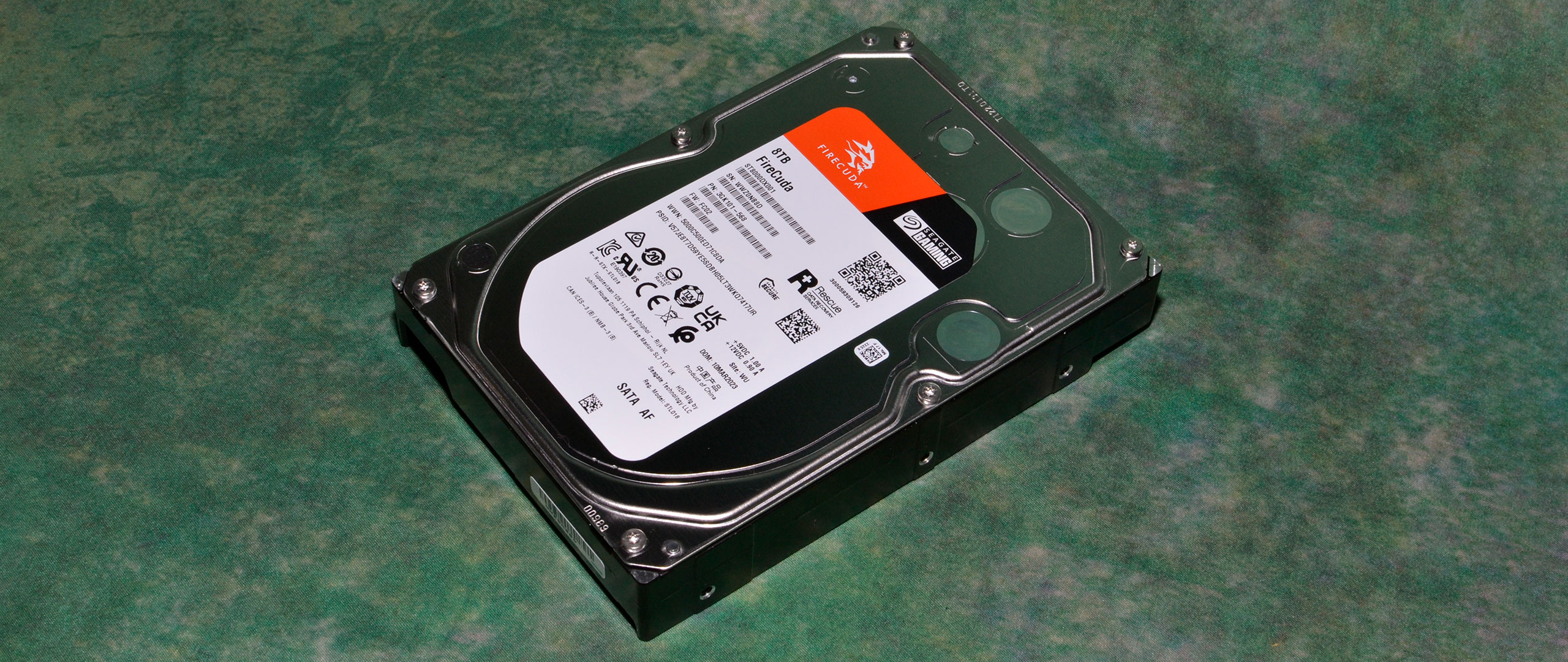
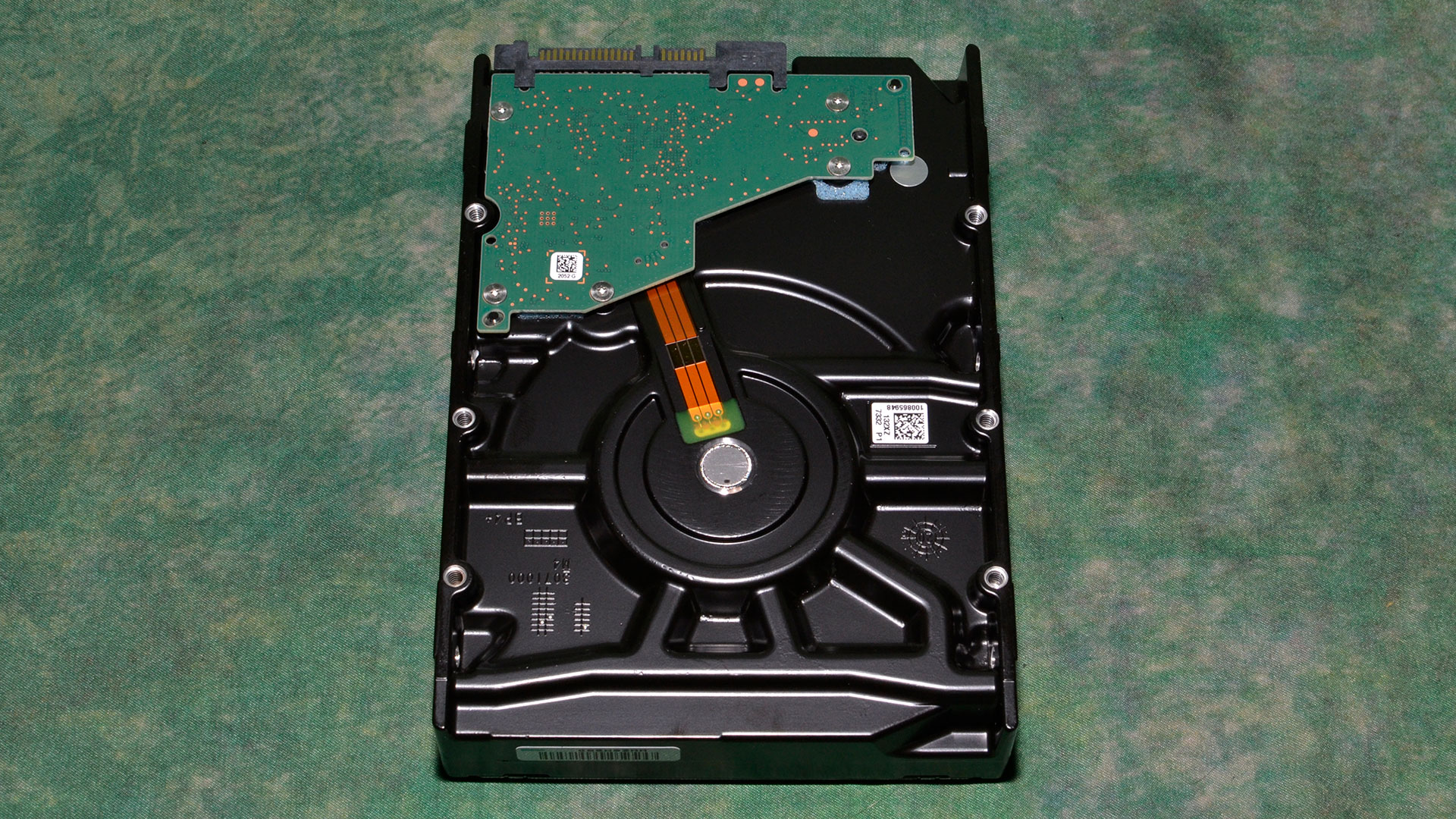
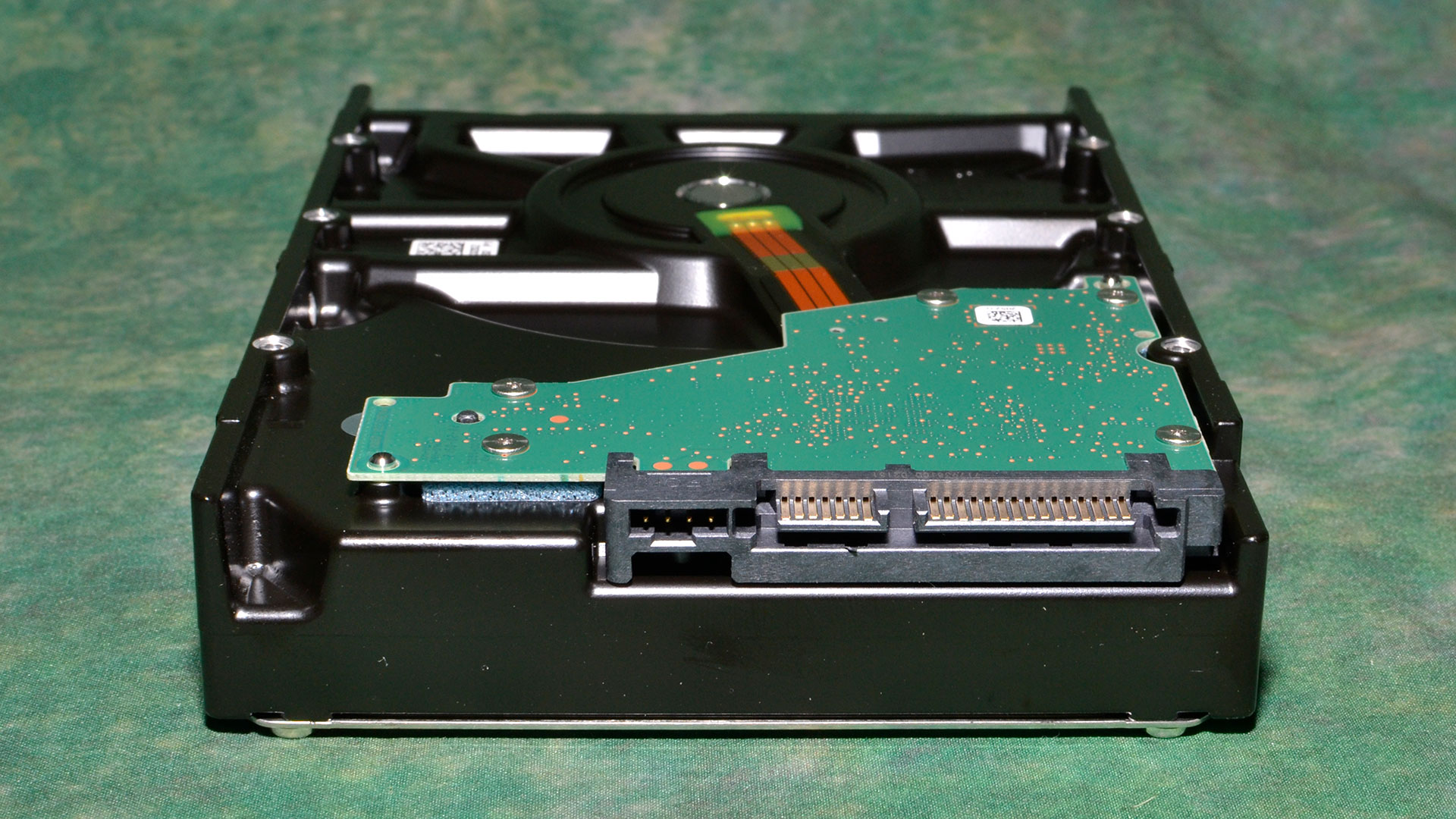
The FireCuda has an attractive label design but is otherwise what you’d expect from a standard 3.5" 6Gb/s SATA hard drive. Seagate does not use any sort of flash technology in this drive as WD does in its Red Pro, so internally, it has the typical spindle and drive controllers along with a 256MB DRAM cache.
MORE: Best SSDs
MORE: Best External SSDs and Hard Drives
MORE: How We Test HDDs And SSDs
MORE: All SSD Content
Comparison Products
We compared the 8TB Seagate FireCuda HDD to other HDDs we have on hand, which includes a few 20TB models: the Seagate Skyhawk AI, the Seagate Exos X20, and the Seagate IronWolf Pro. The 8TB competition includes the WD Blue, the Seagate BarraCuda, the Seagate IronWolf Pro, and the older HGST UltraStar He8. We threw in the 6TB WD Black for good measure, as WD’s Black HDD line is a direct competitor to the FireCuda series.
Trace Testing - 3DMark Storage Benchmark
Built for gamers, 3DMark’s Storage Benchmark focuses on real-world gaming performance. Each round in this benchmark stresses storage based on gaming activities, including loading games, saving progress, installing game files, and recording gameplay video streams.
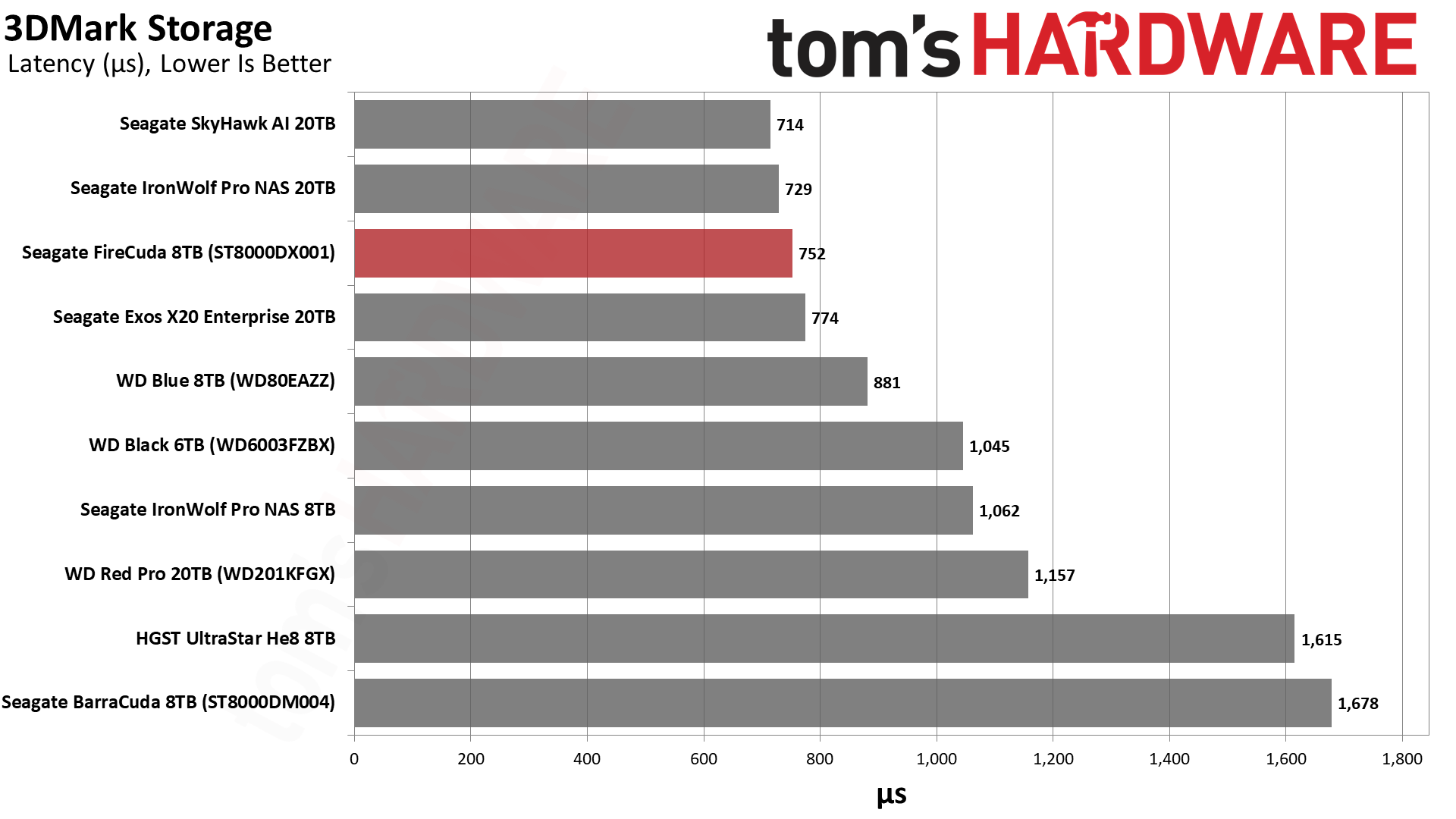
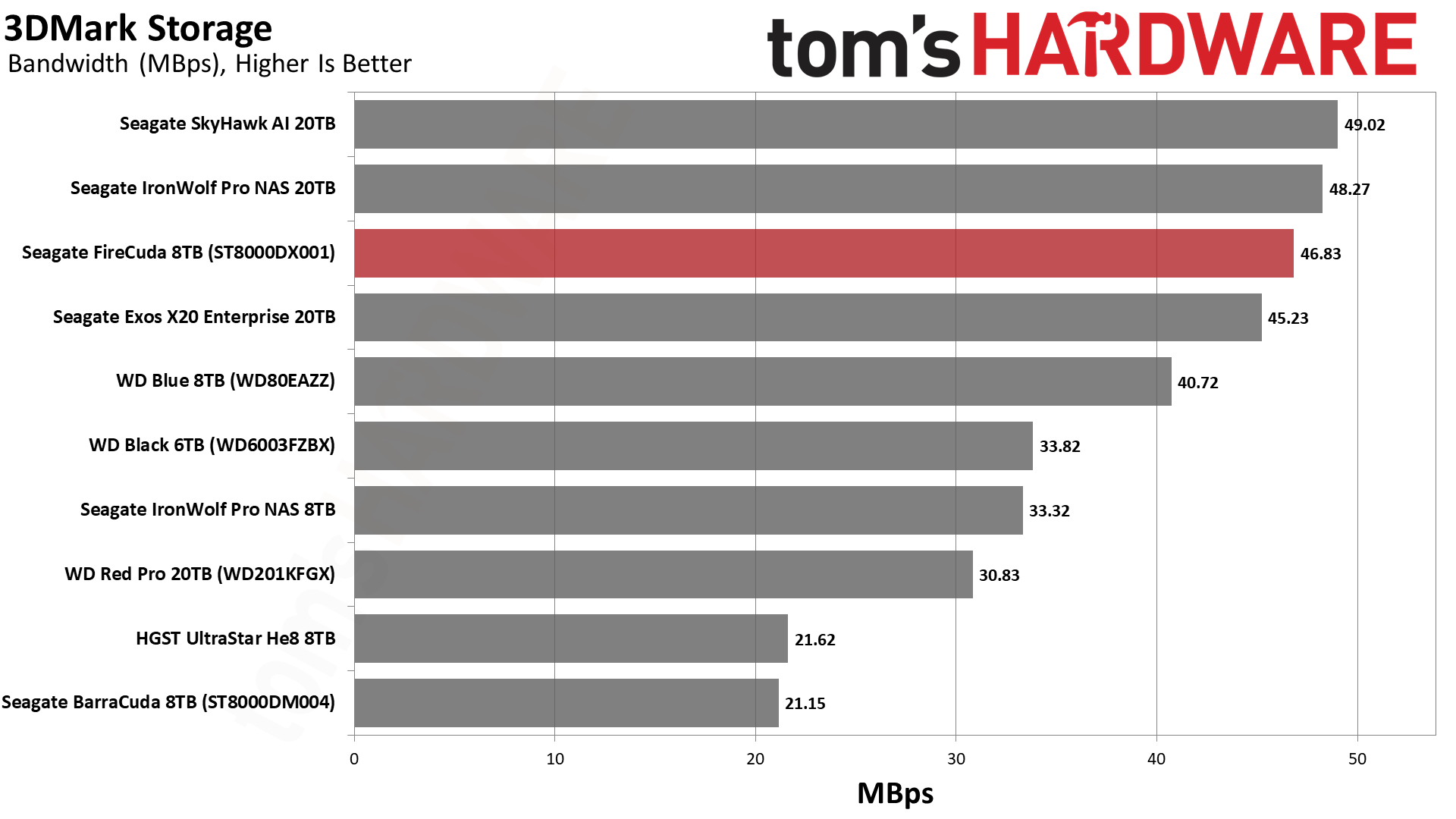
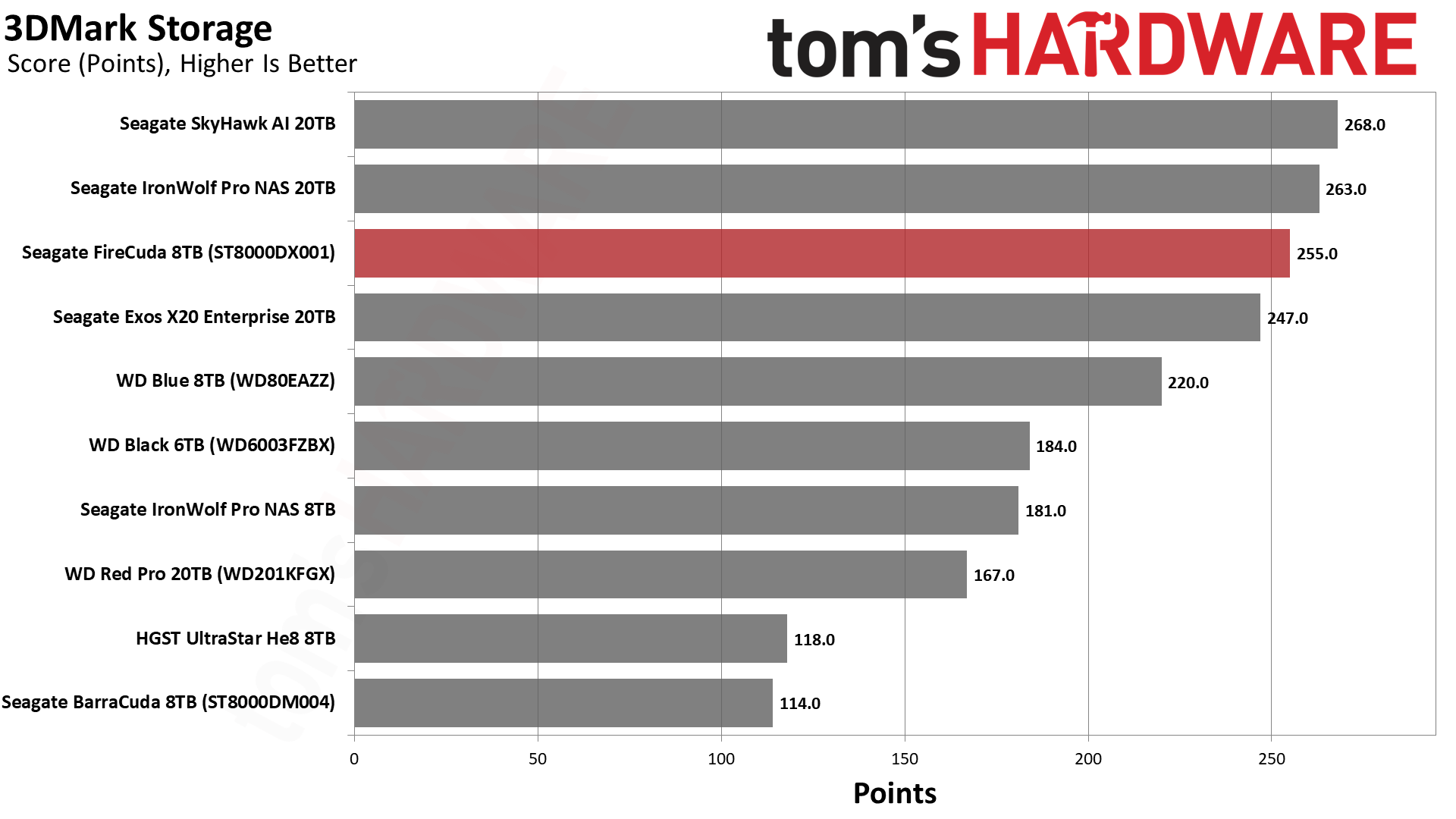
The Seagate FireCuda is marketed for gaming, and although one of the best SSDs will give you significantly better load times and performance, the FireCuda is near the top of the HDDs in our gaming test chart. The 8TB Seagate FireCuda scores well in 3DMark, falling right in line with the 20TB drives. The 8TB WD Blue can’t keep up, which isn't surprising given its budget focus.
Trace Testing – PCMark 10 Storage Benchmark
PCMark 10 is a trace-based benchmark that uses a wide-ranging set of real-world traces from popular applications and everyday tasks to measure the performance of storage devices.
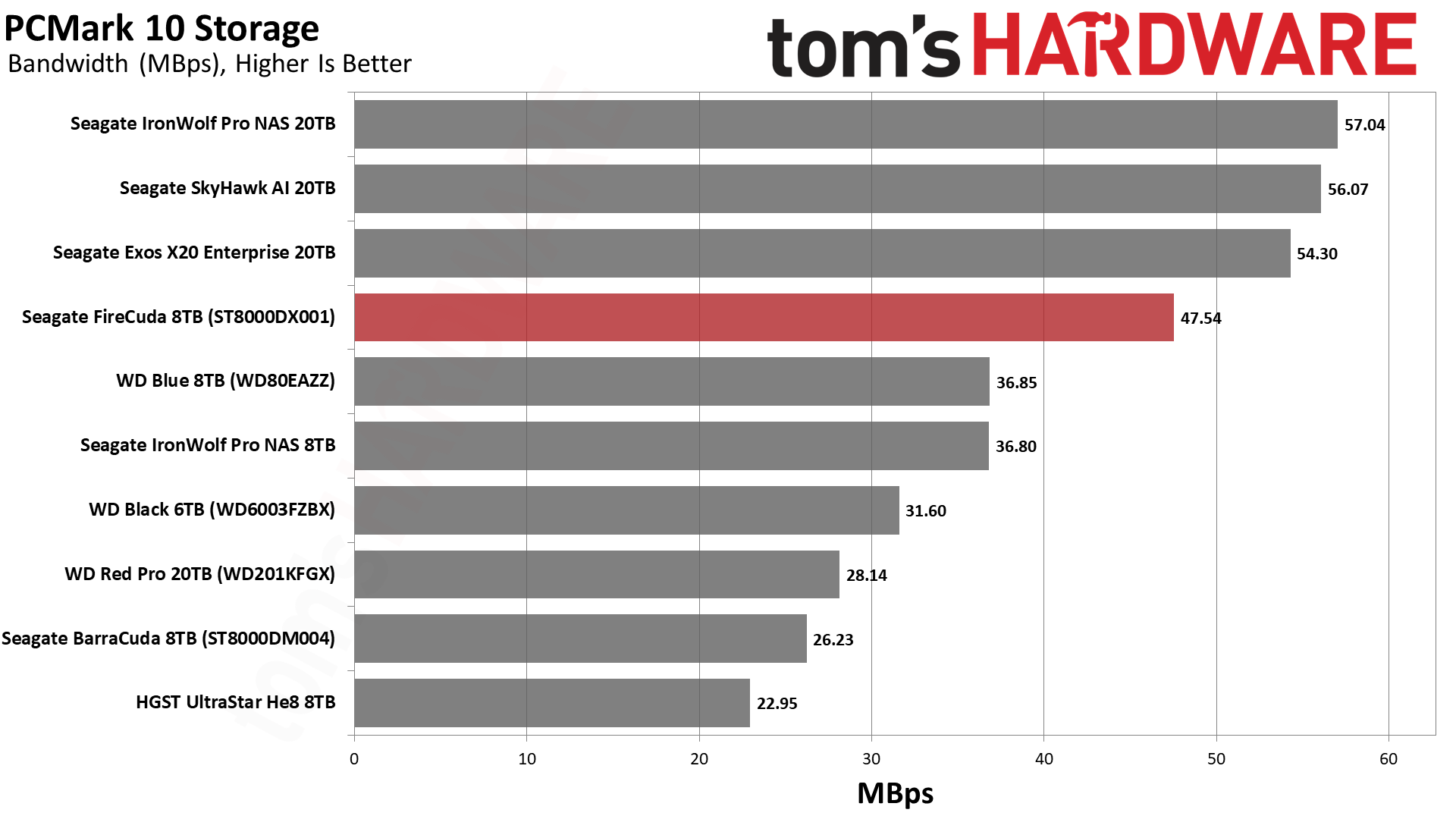
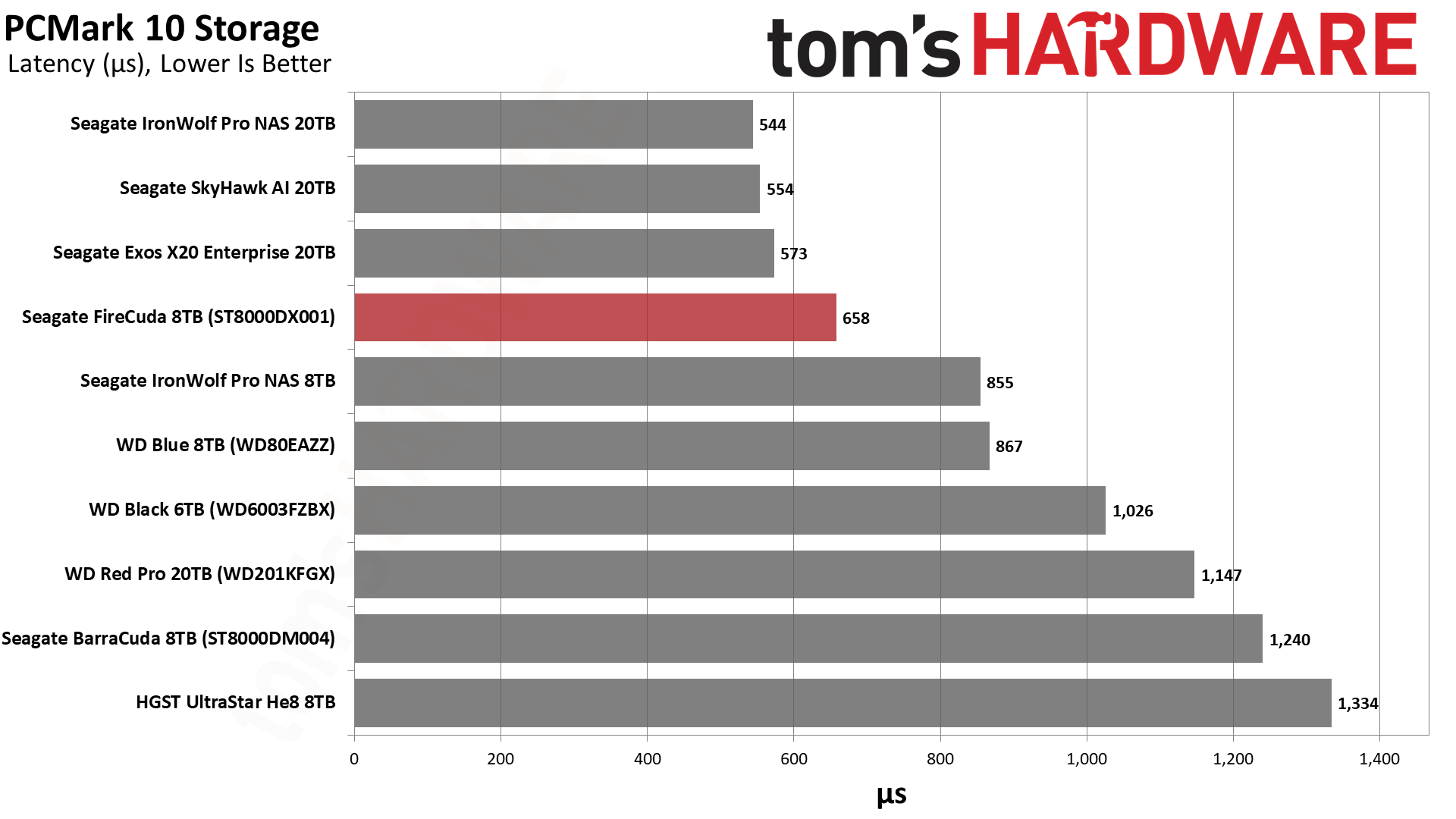
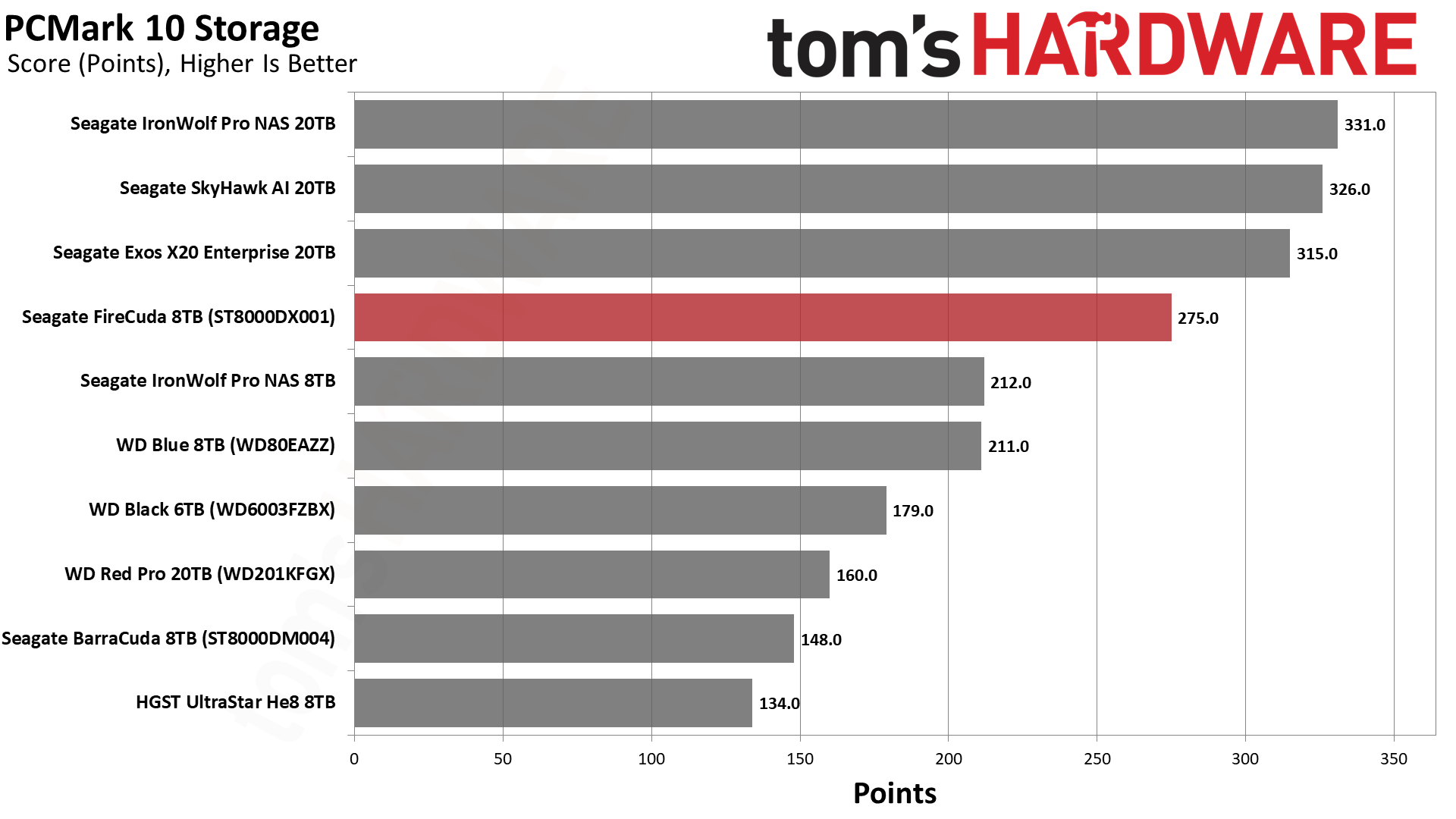
The FireCuda does well in PCMark 10, too, although not as well as it did in 3DMark, as it falls behind the faster 20TB drives. However, the FireCuda easily outclasses the other 8TB drives. In either case, HDDs are not ideal for operating systems or application use, although that can be improved with SSD caching.
Transfer Rates – DiskBench
We use the DiskBench storage benchmarking tool to test file transfer performance with a custom, 50GB dataset. We copy 31,227 files of various types, such as pictures, PDFs, and videos to a new folder and then follow-up with a reading test of a newly-written 6.5GB zip file.
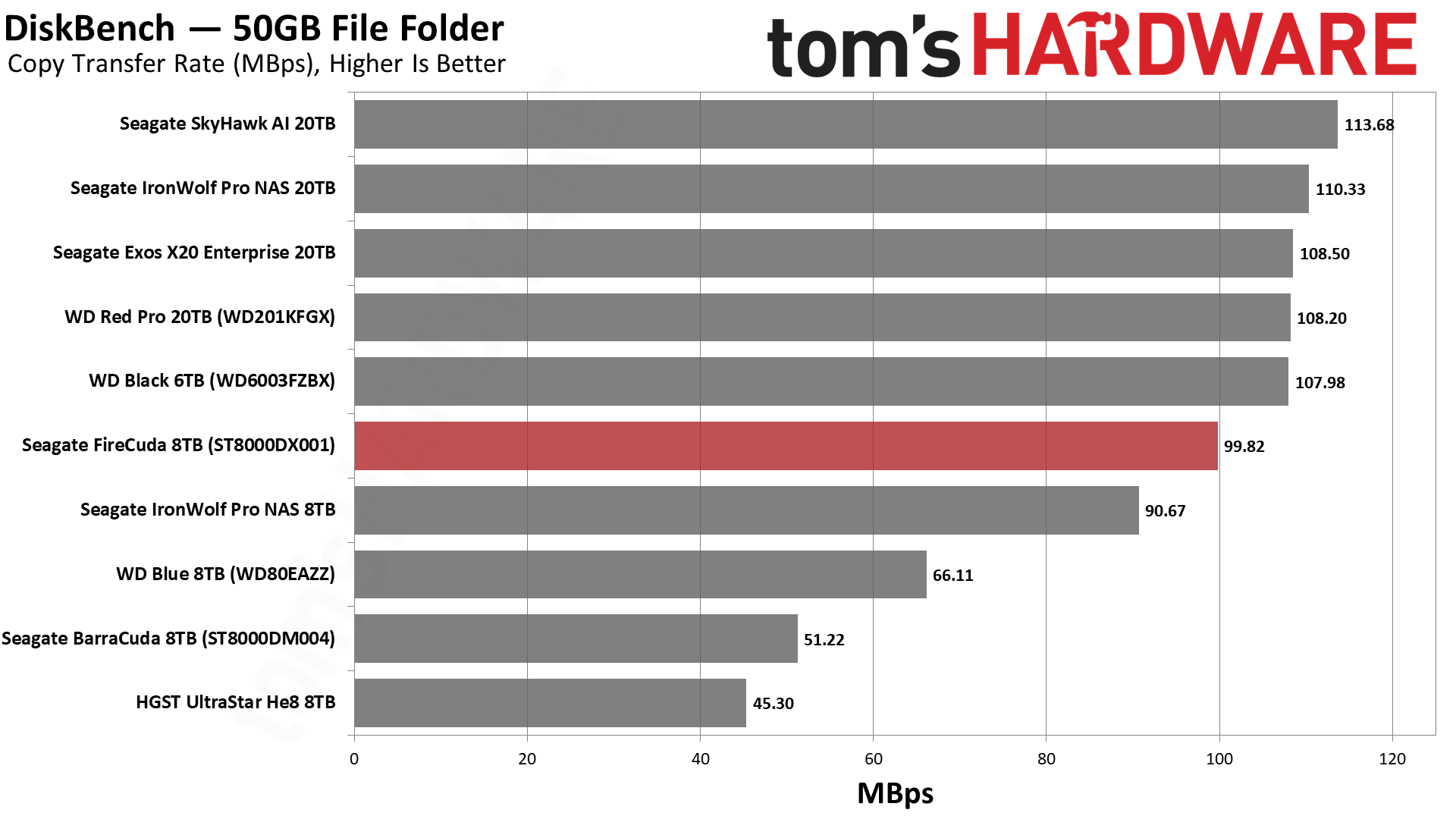
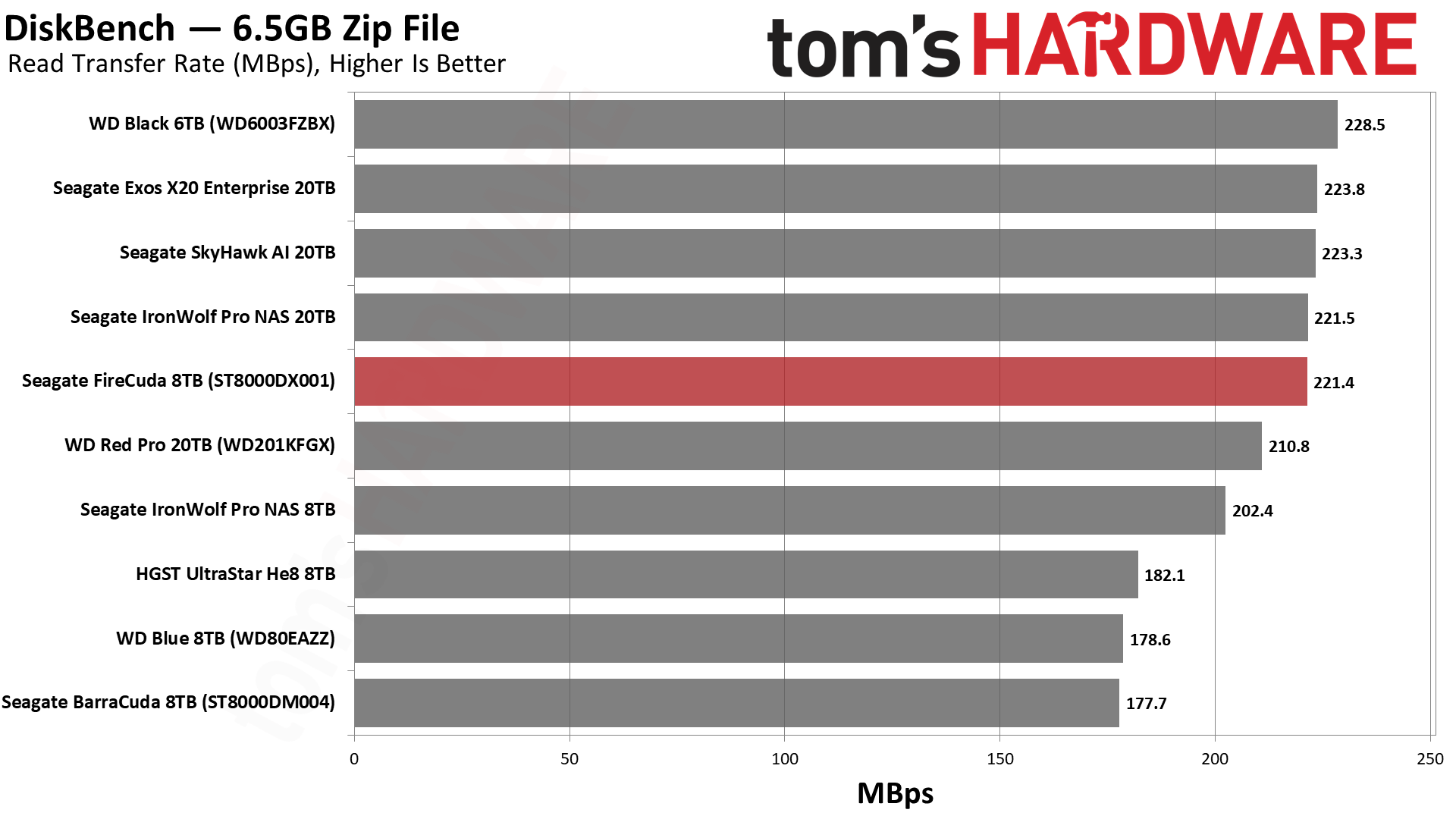
The FireCuda’s copy transfer rate leaves something to be desired. 100 MB/s is reasonable, but we expect that WD’s 8TB Black HDD line would perform better. In fact, the 6TB WD Black leads the FireCuda in both the file copy and read portions of the test. File copy workloads with a diverse and mixed set of file sizes are a typical bottleneck for HDDs, but these speeds are adequate for the typical 1GbE home network.
Synthetic Testing - ATTO / CrystalDiskMark
ATTO and CrystalDiskMark (CDM) are free and easy-to-use storage benchmarking tools that storage vendors commonly use to assign performance specifications to their products. Both of these tools give us insight into how each device handles different file sizes.
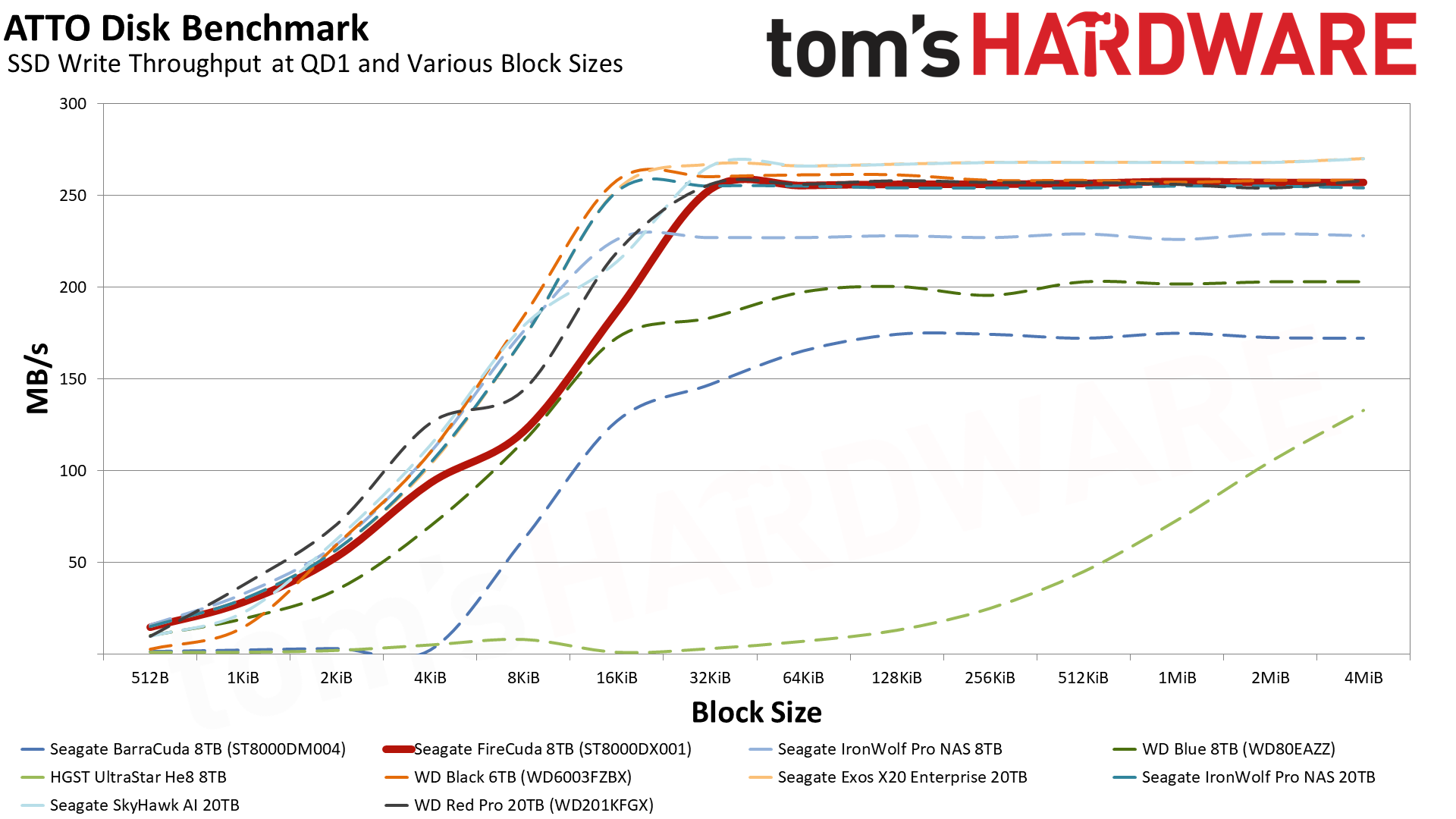
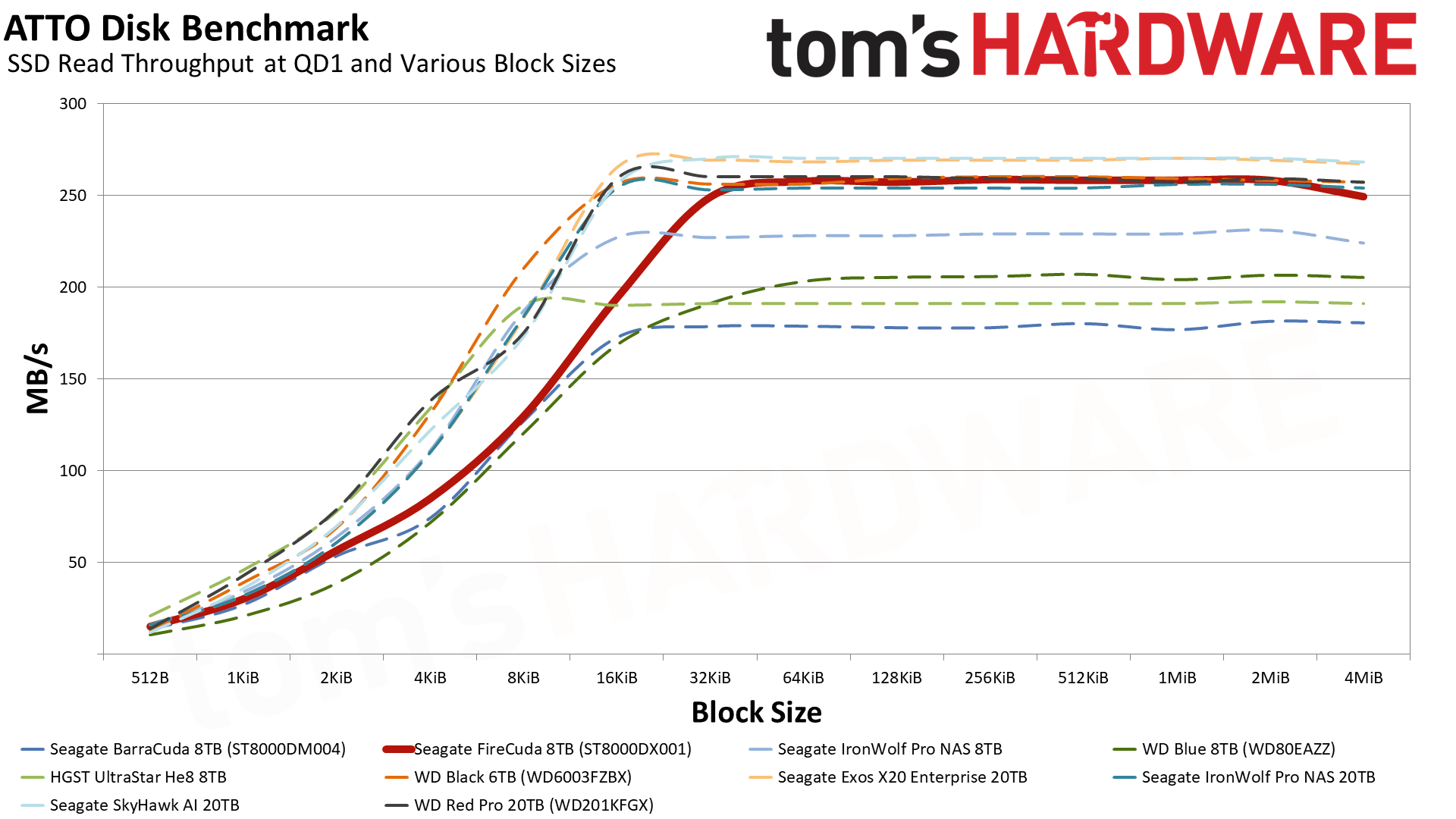
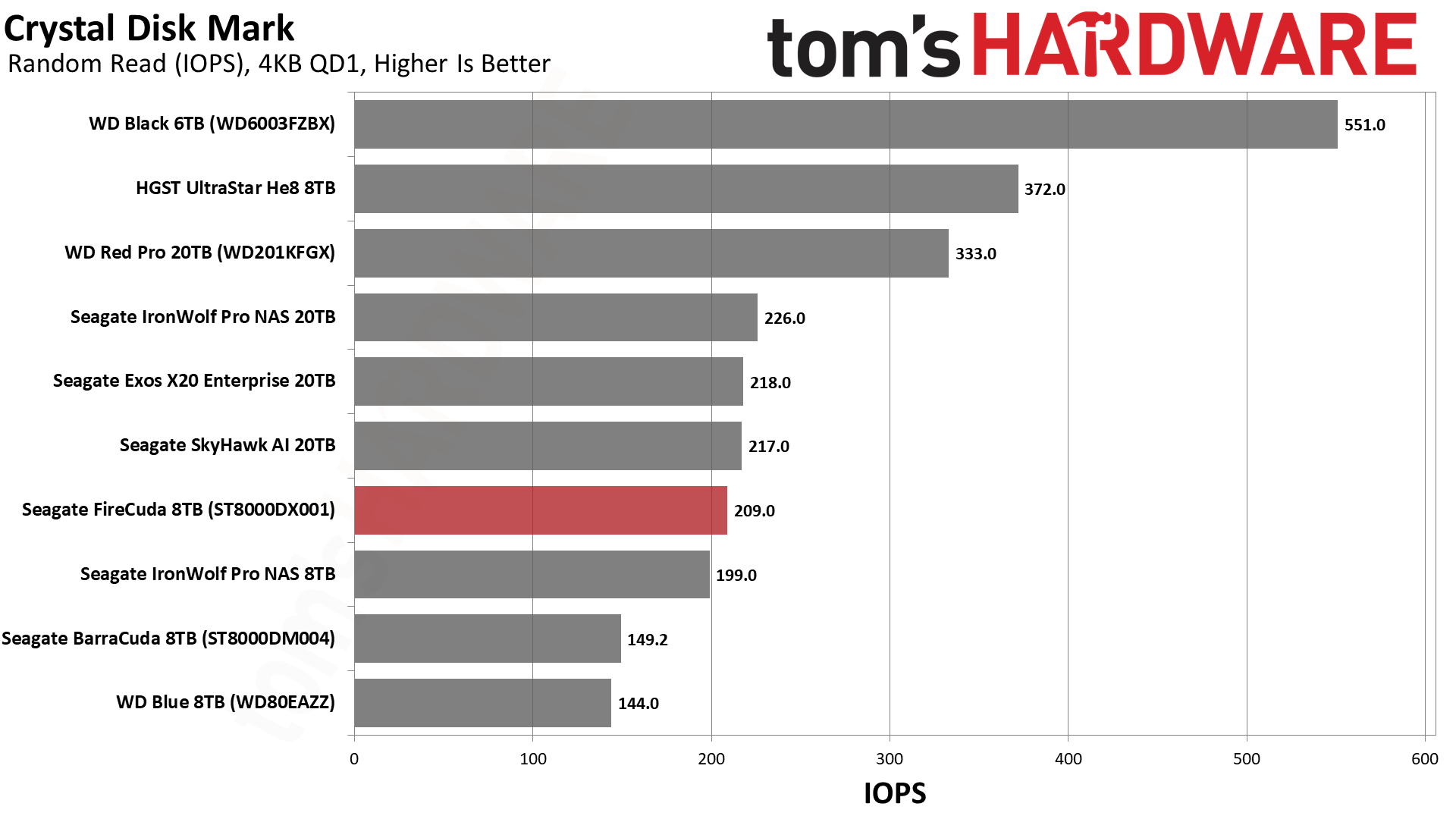
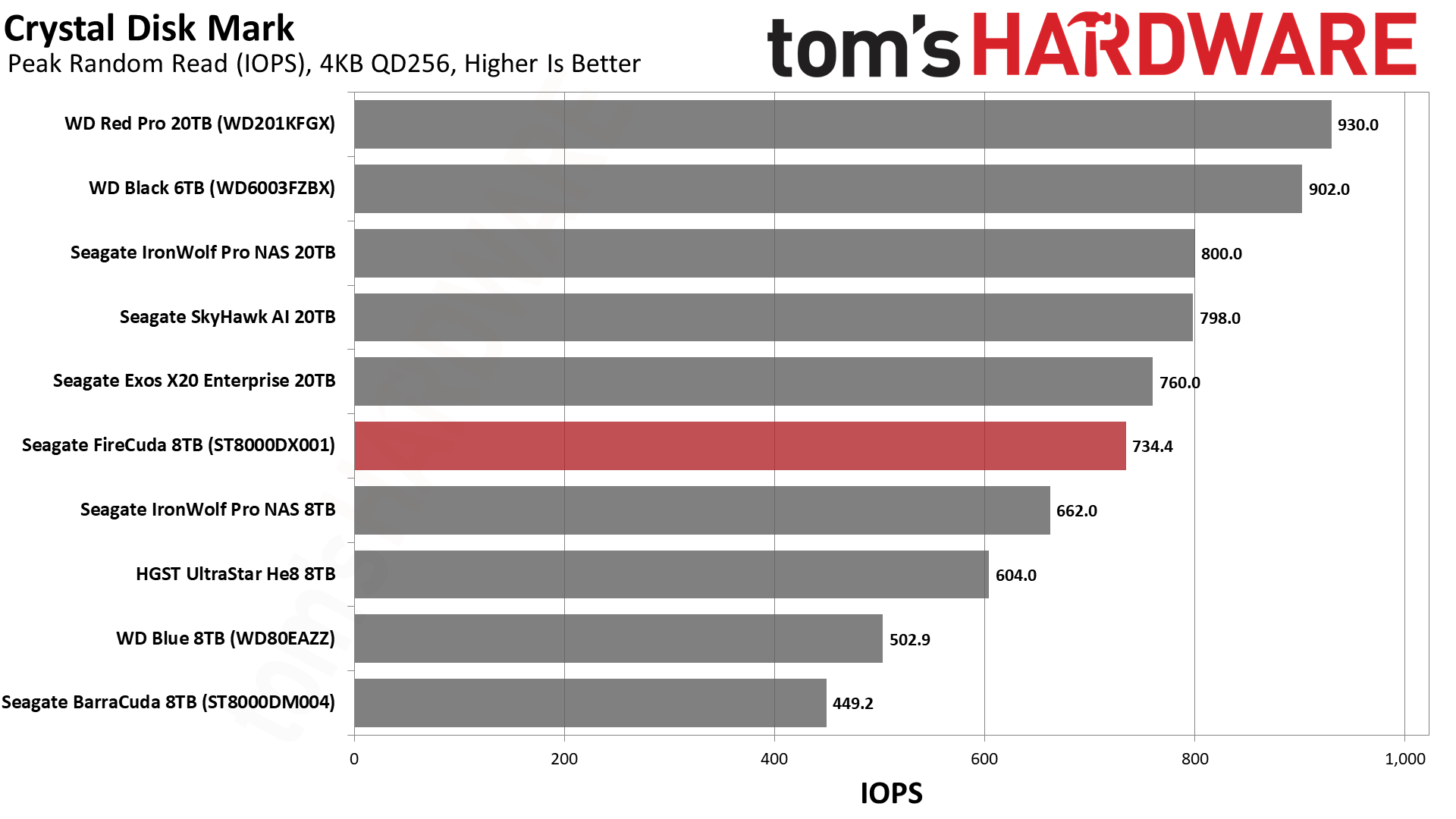
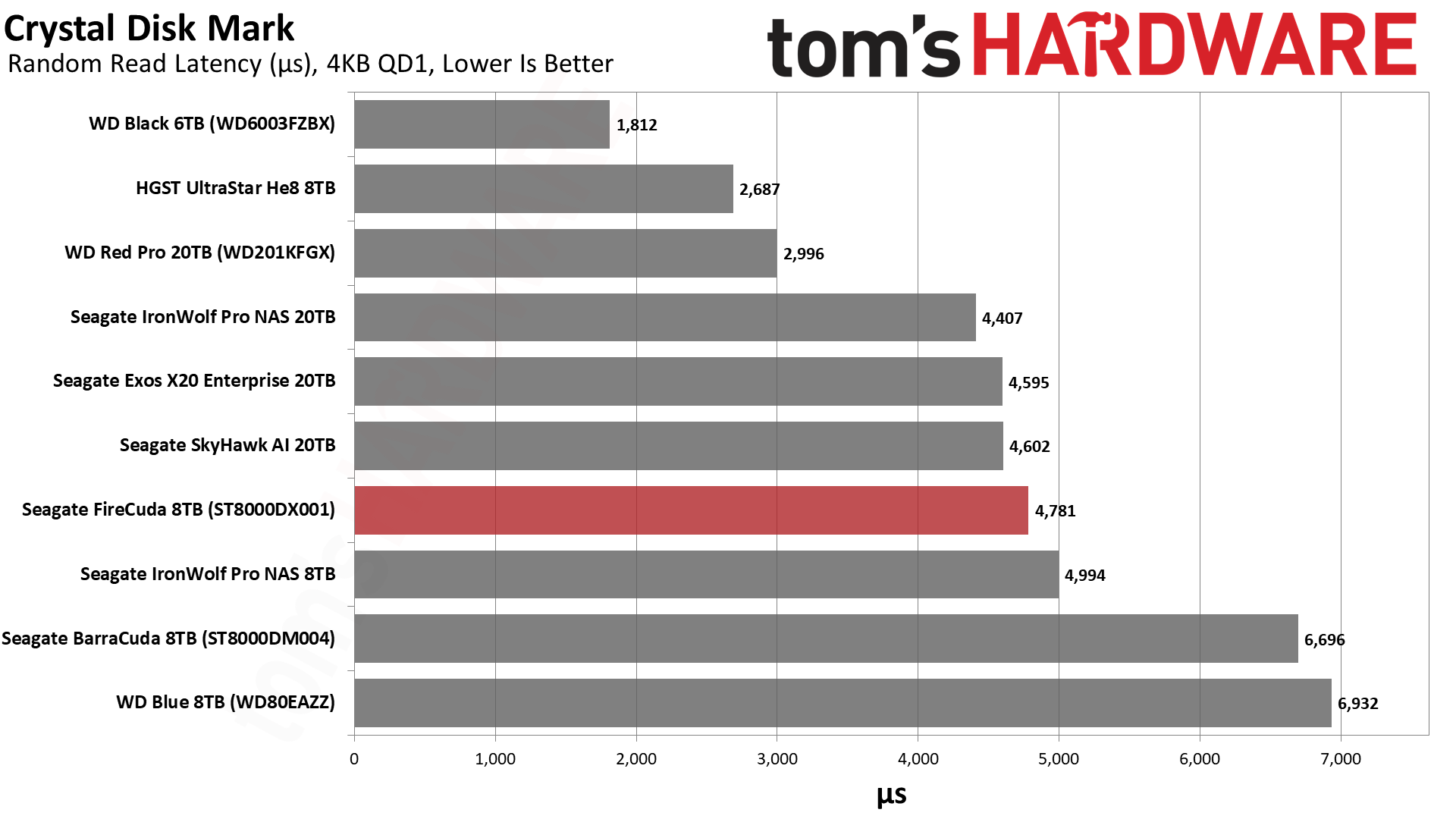
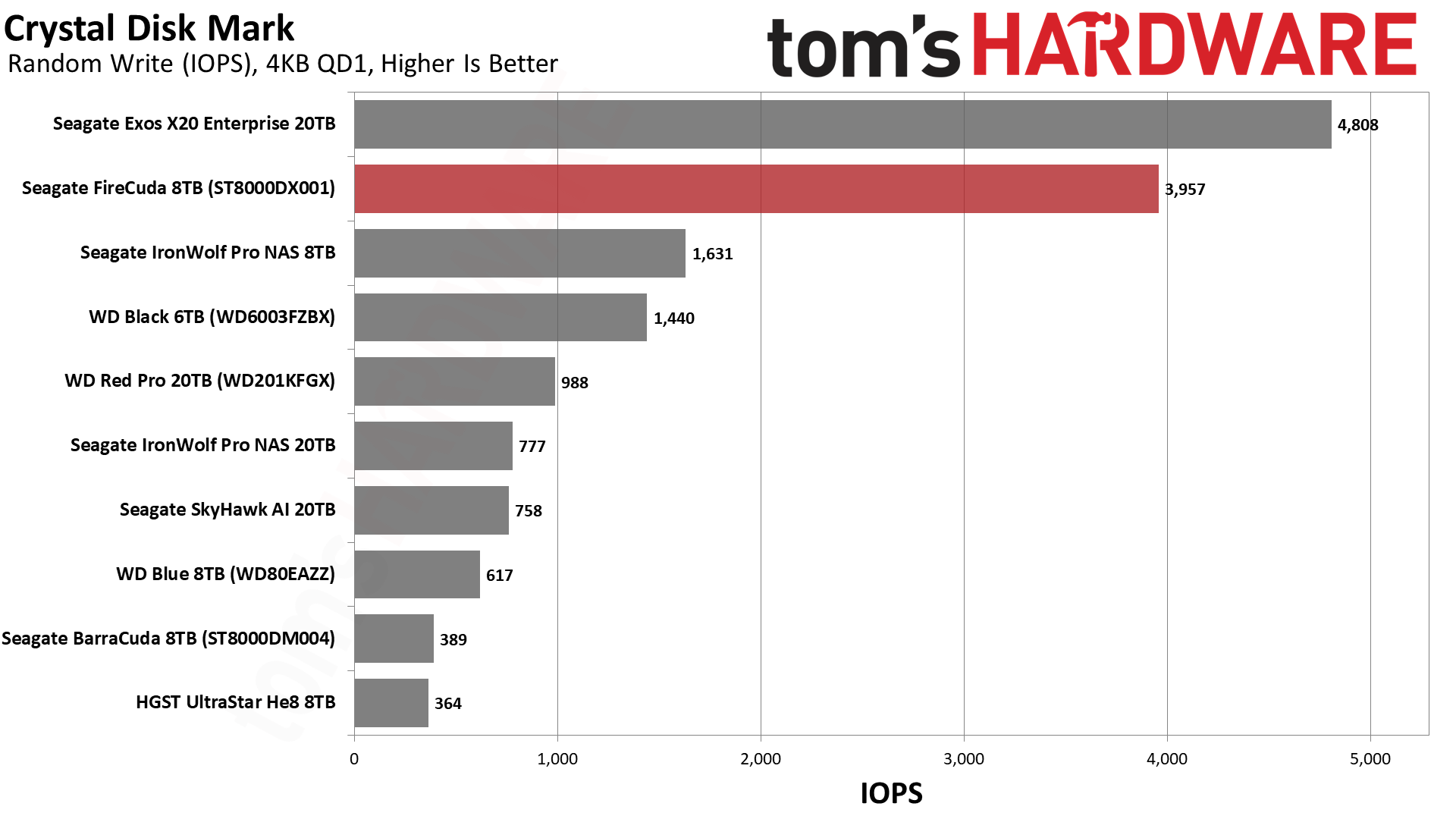
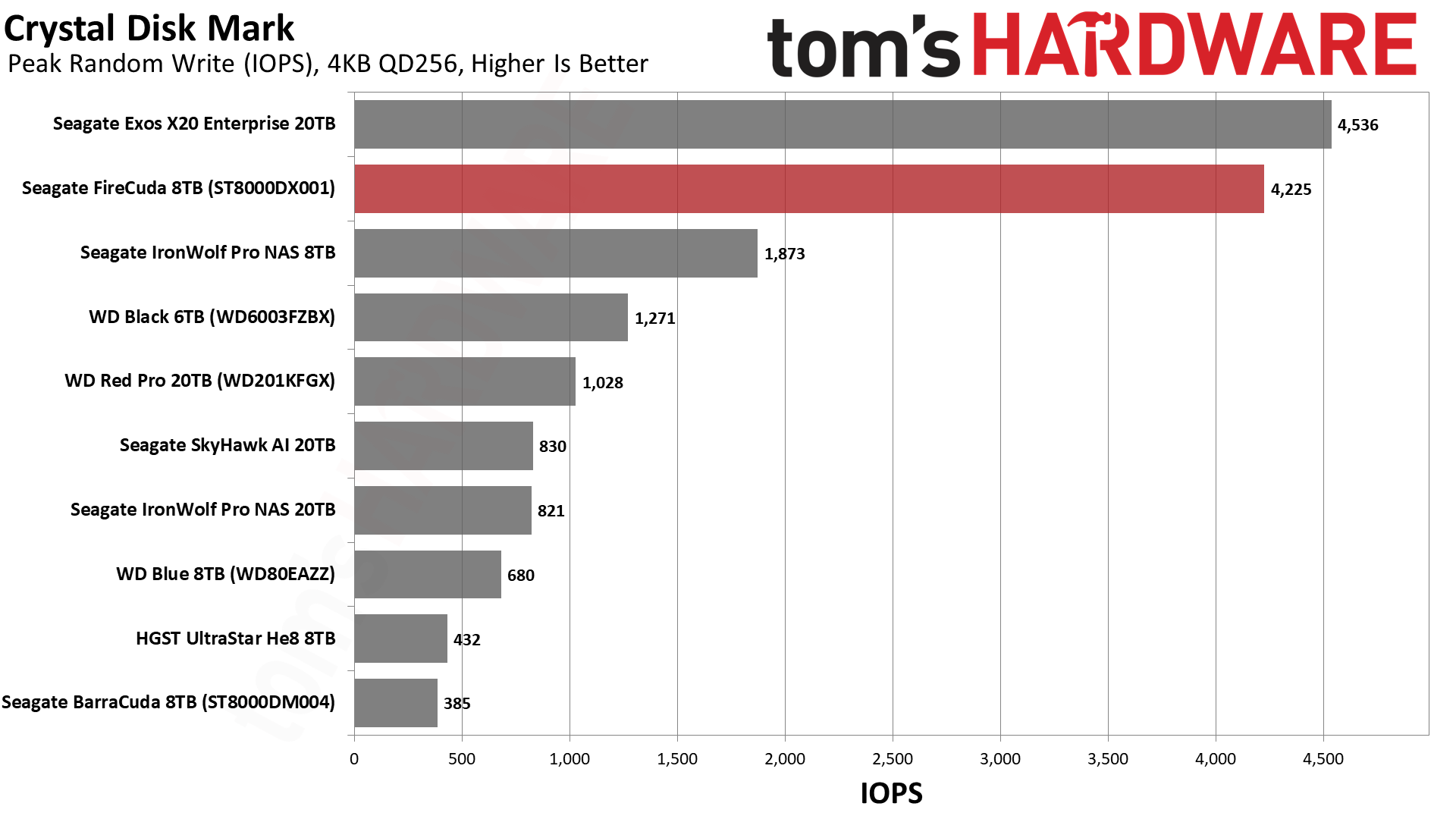
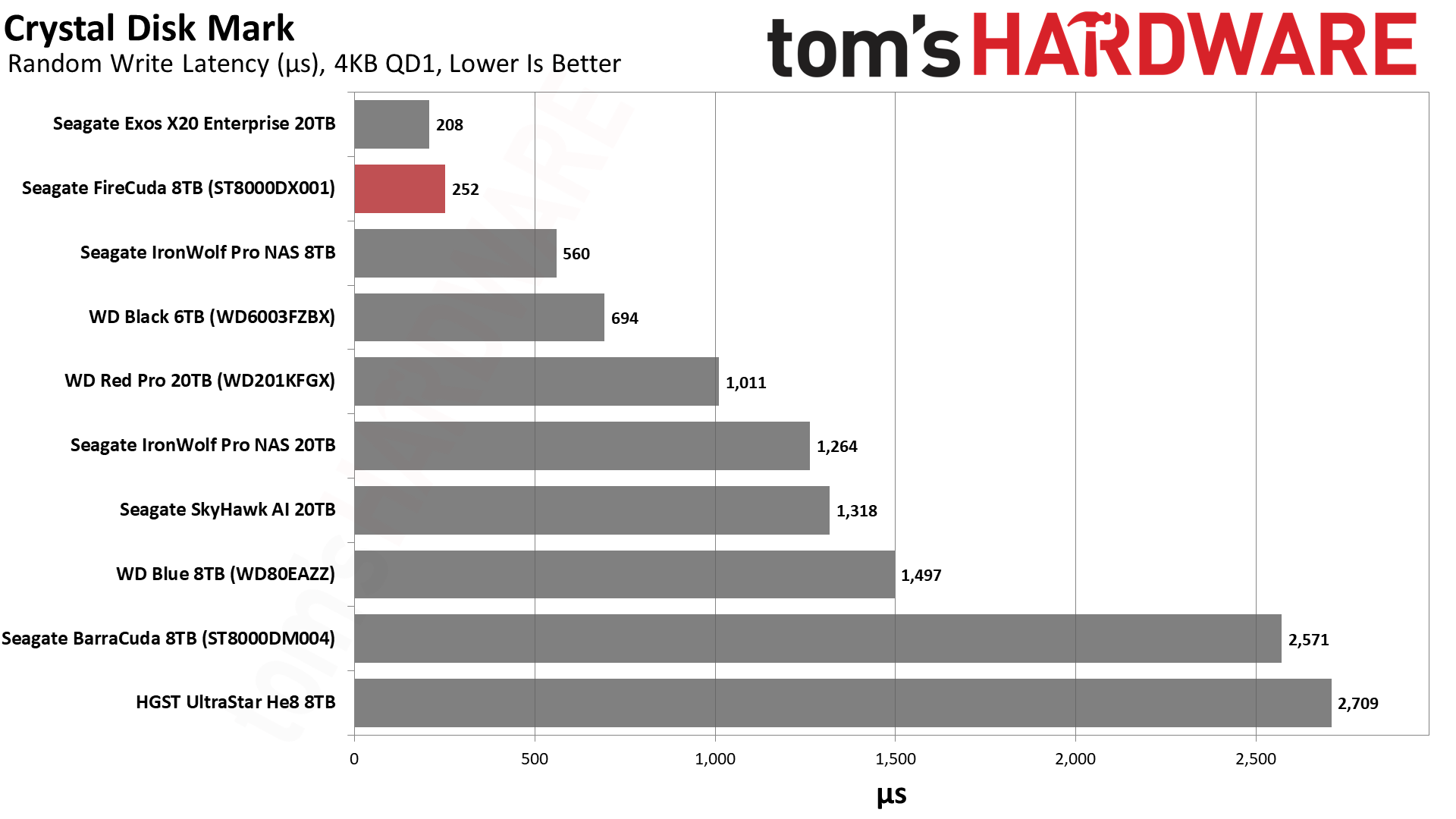
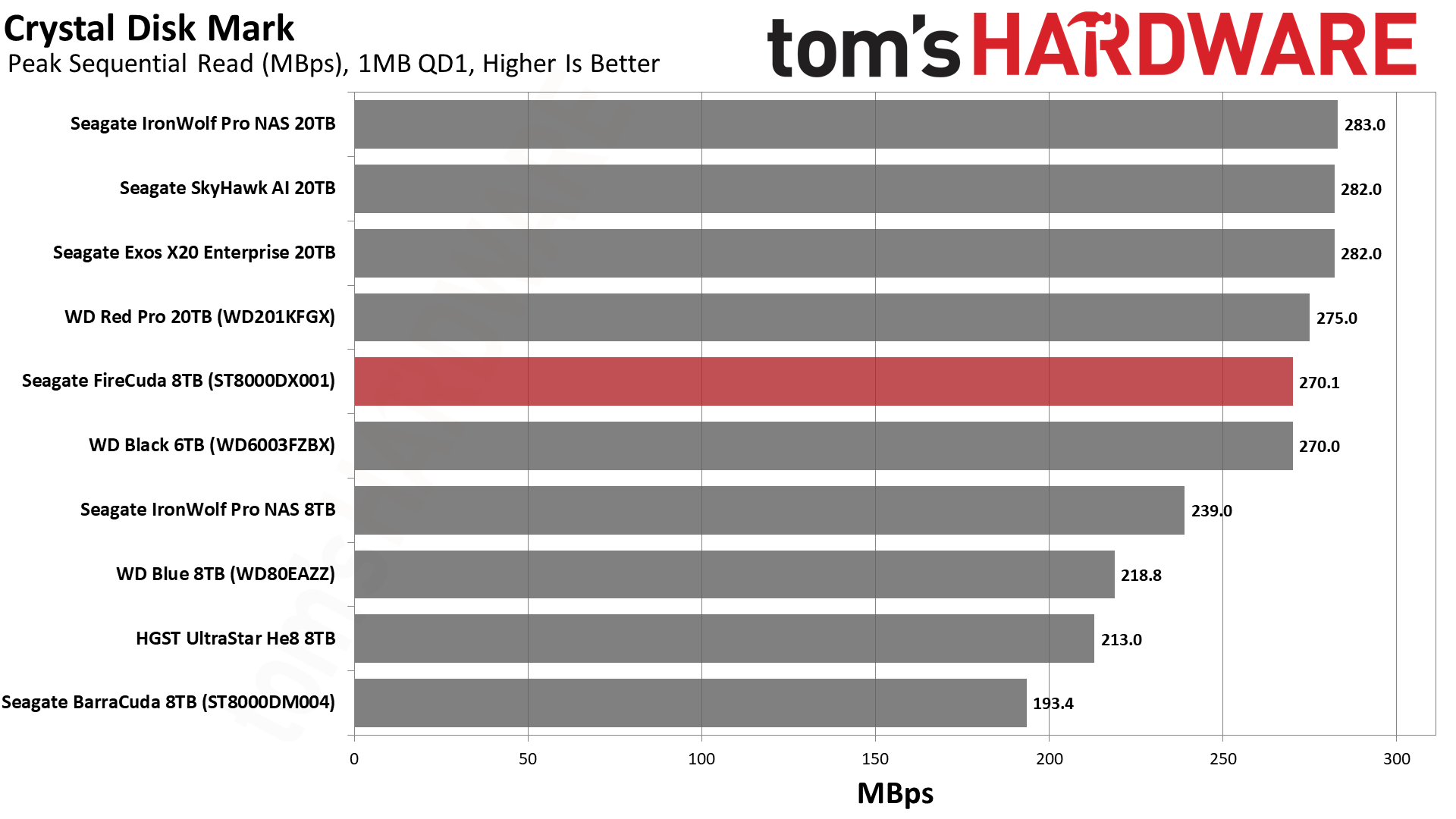
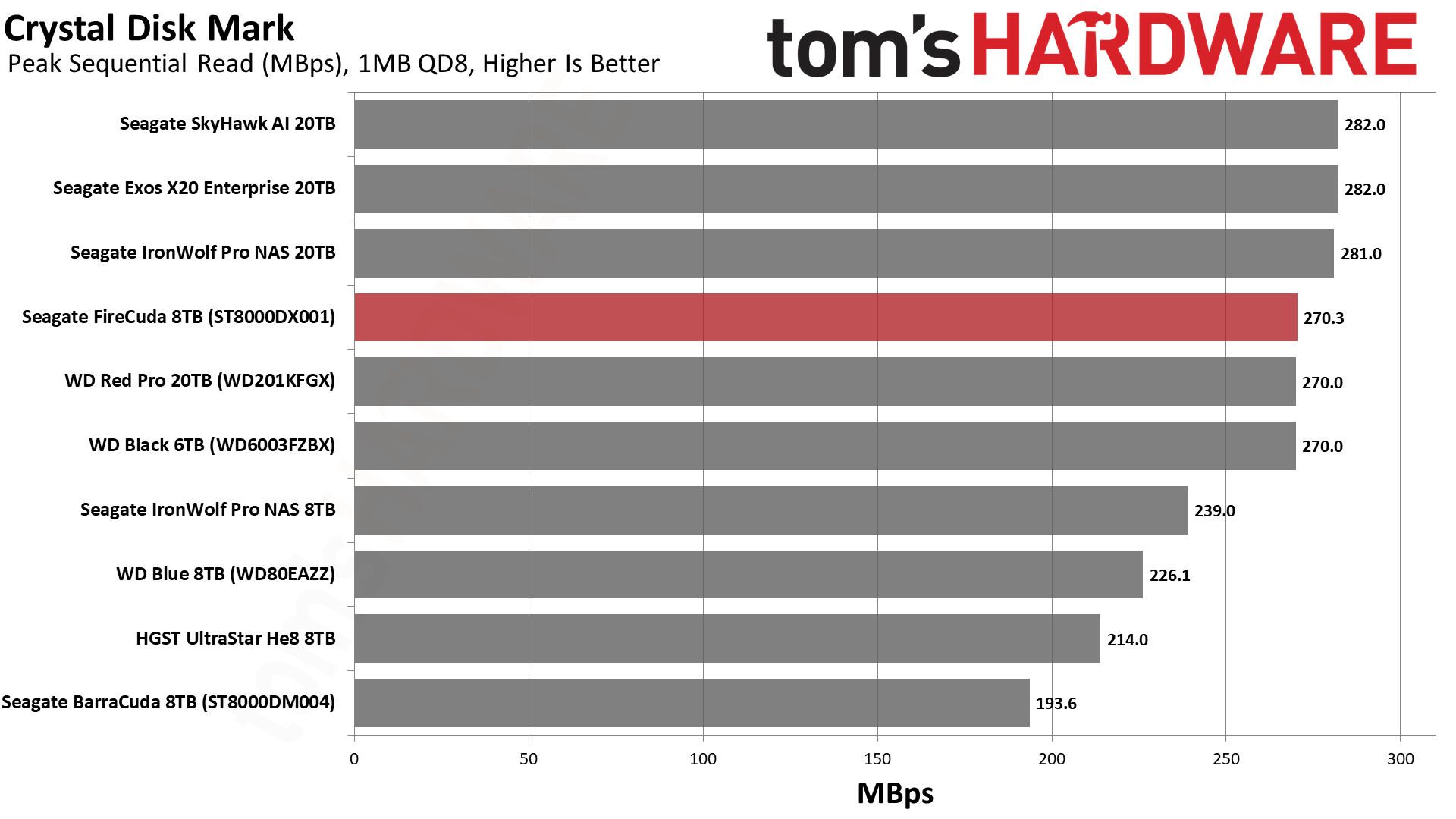
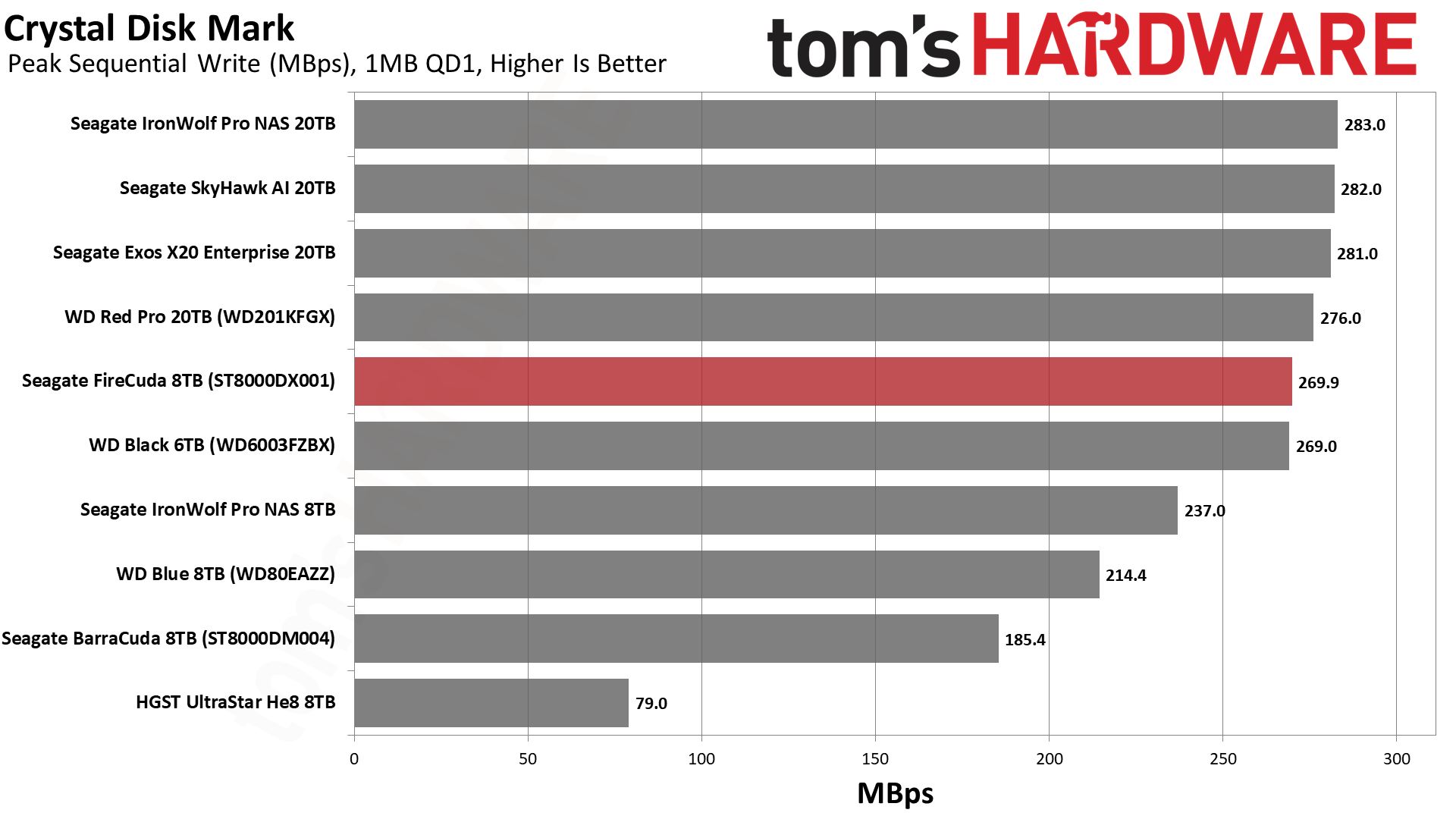
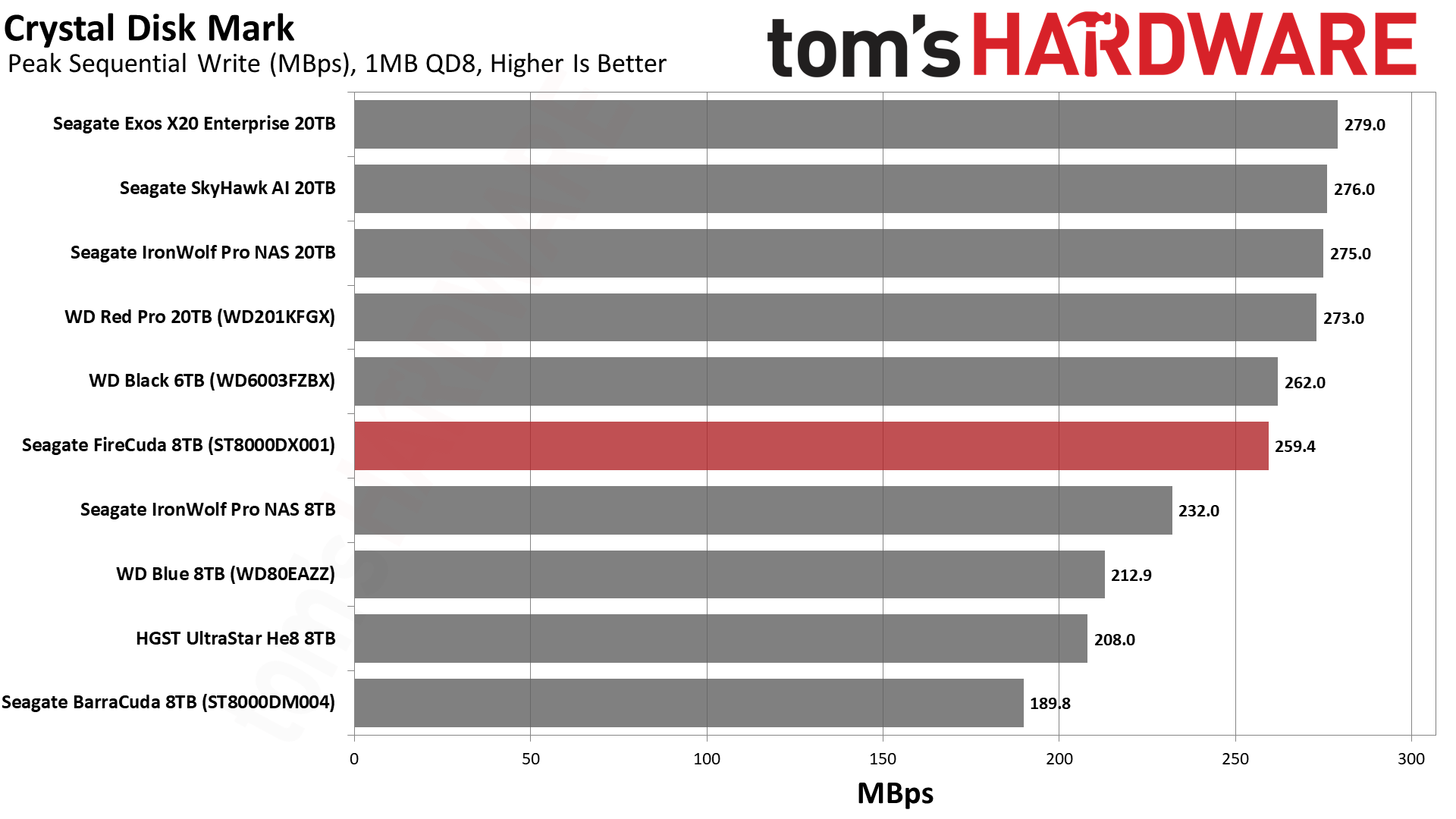
The FireCuda reaches the expected peak performance in ATTO when given a large enough block size. Smaller block sizes show it lagging a bit, however, but not nearly as much as we see with 5400-RPM-class drives — not to mention the SMR-hindered BarraCuda.
The FireCuda's sequential performance in Crystal Disk Mark is as expected, and its 4KB write latency is surprisingly good. However, the 4KB random read latency is below average. The FireCuda still beats the Blue and BarraCuda HDDs but doesn't compare as well against WD’s OptiNAND technology in the Red Pro, which is an acceptable tradeoff given the FireCuda's much lower price point.
Sustained Write Performance
Official write specifications are only part of the performance picture. Most HDDs implement a write cache which is a fast area of volatile memory such as DRAM. Sustained write speeds directly hit the platters and tend to be consistent. There are exceptions to both of these statements as there are SSHDs (flash-containing hybrid HDDs), OptiNAND drives, and SMR drives that deviate from the traditional configuration. We use Iometer to detect the maximum sustained write speed of the HDD.
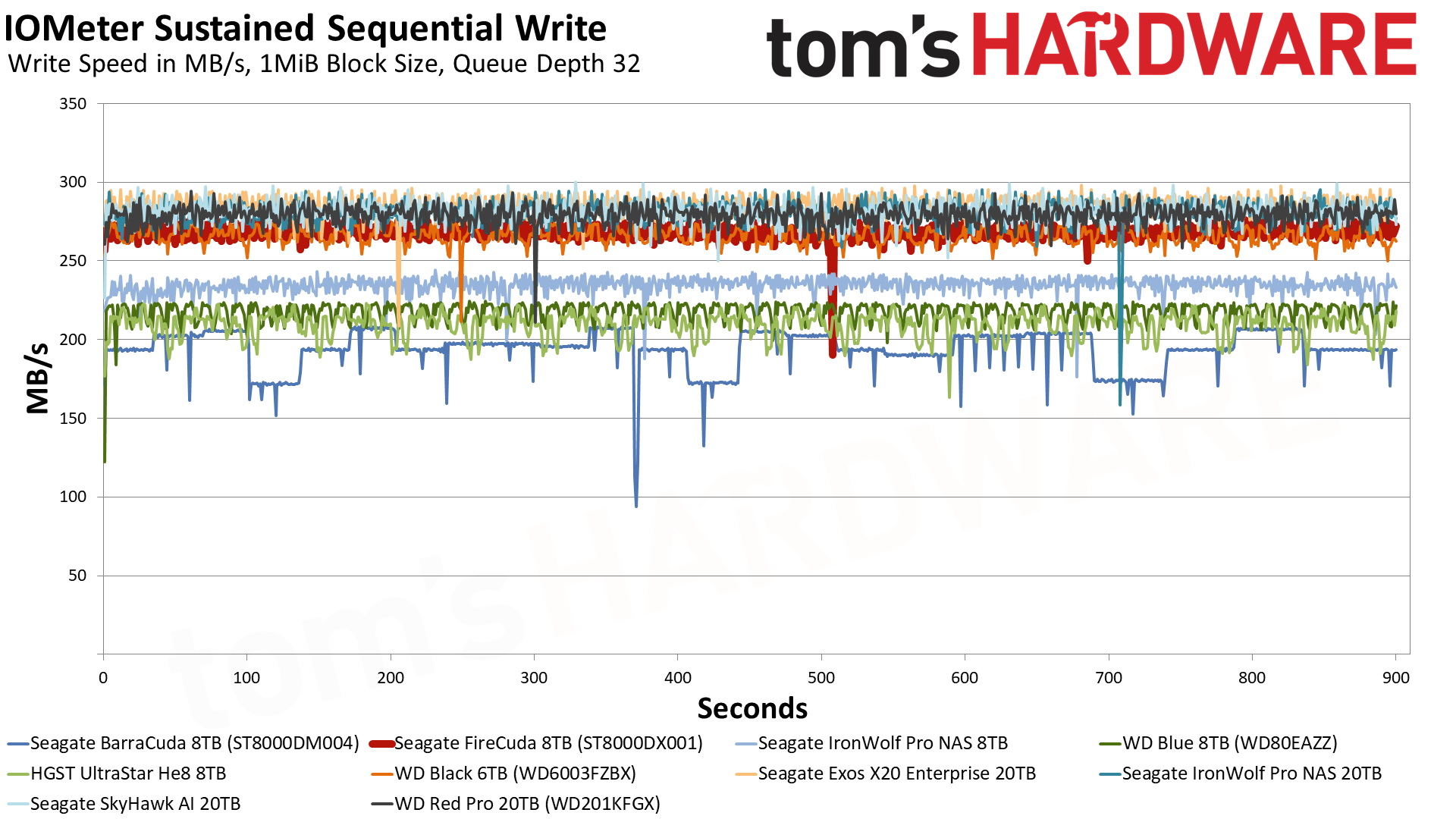
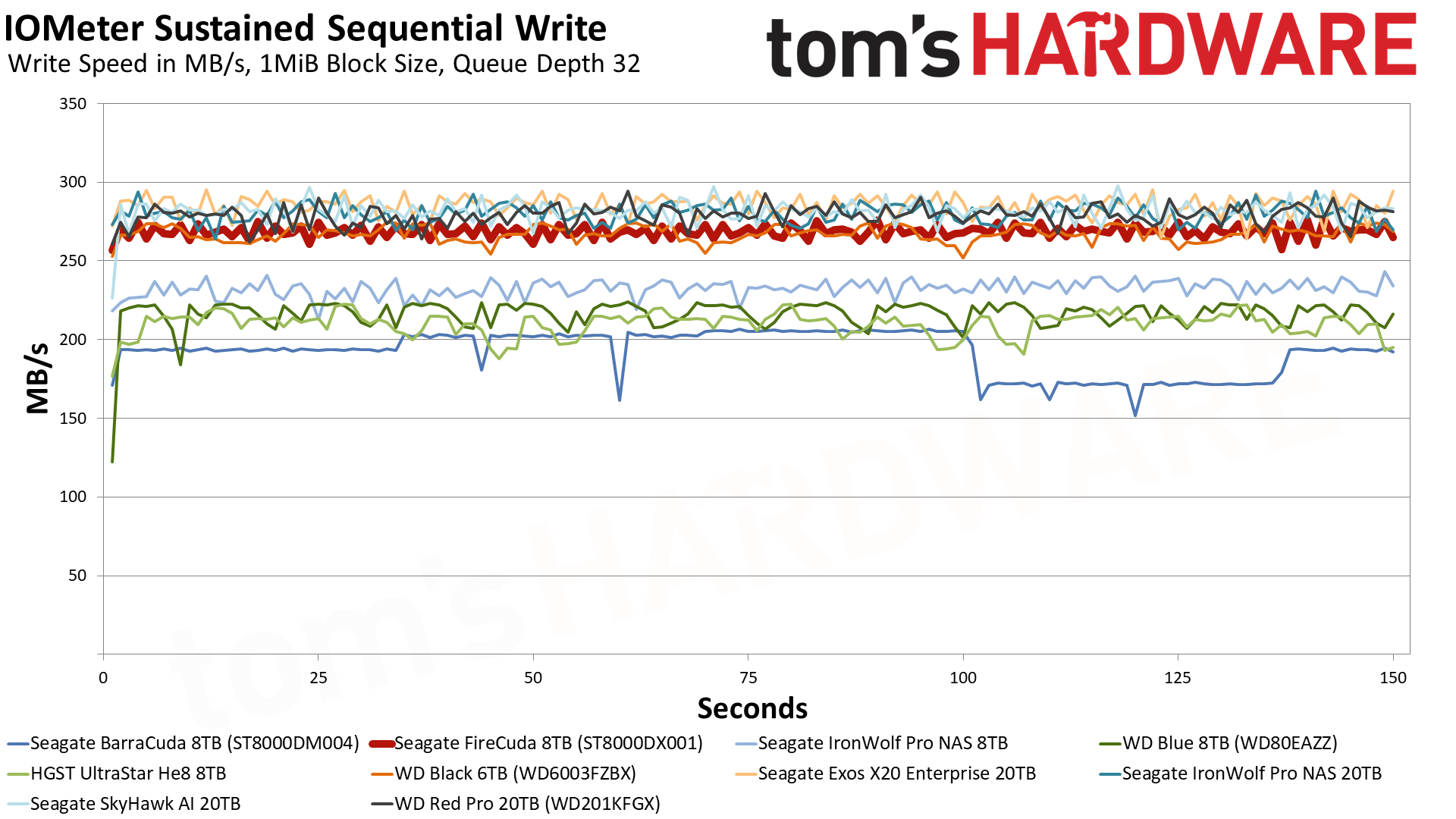
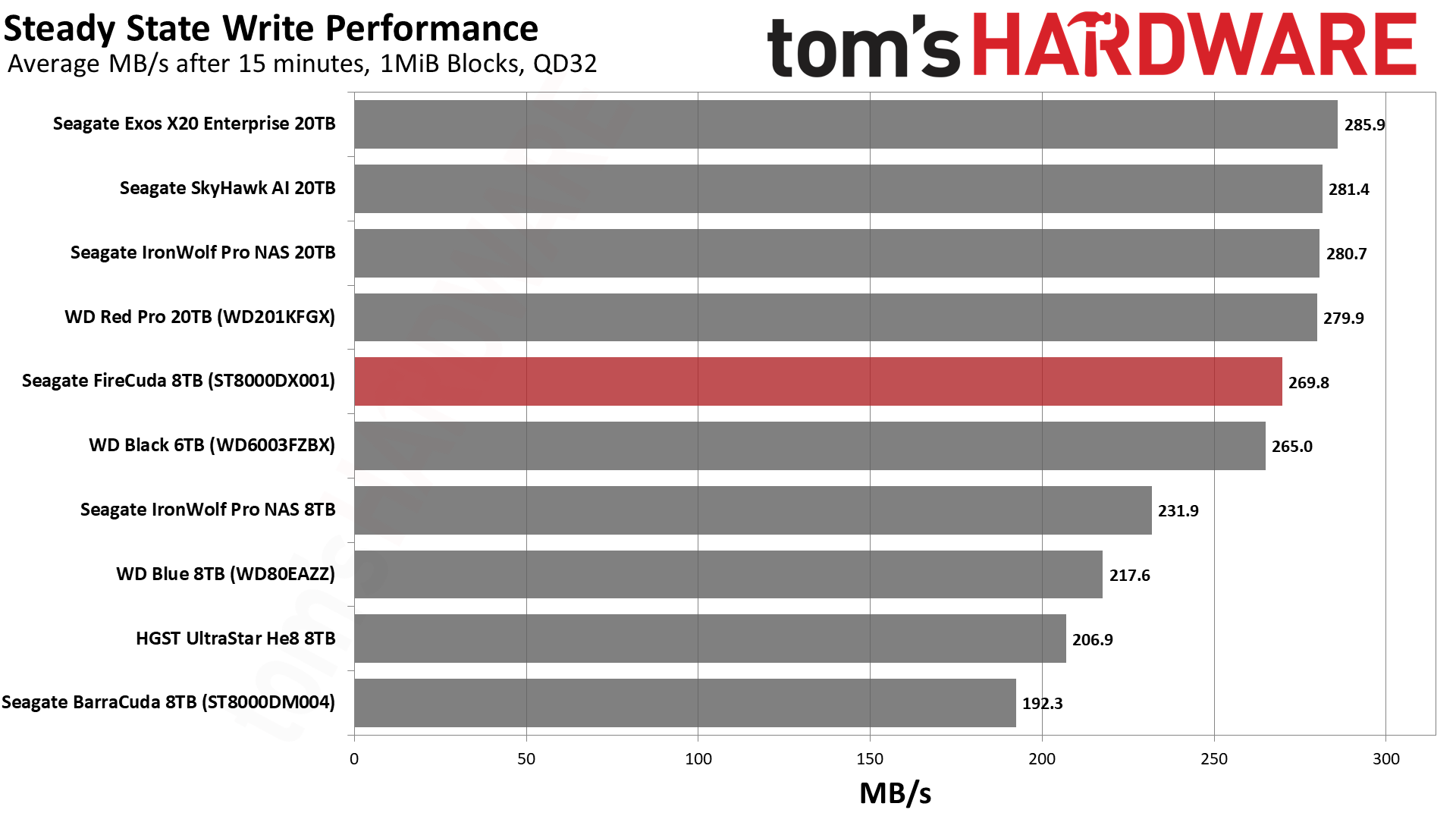
The FireCuda shows no anomalies during the sustained write benchmark. It maintains almost 270 MB/s, which is 10 MB/s higher than its official specification.
Power Consumption
We use the Quarch HD Programmable Power Module to gain a deeper understanding of power characteristics. Some drives can consume watts of power at idle, while better-suited ones sip just milliwatts. Average workload power consumption and max consumption are two other aspects of power consumption, but performance-per-watt is more important. A drive might consume more power during any given workload, but accomplishing a task faster allows the drive to drop into an idle state more quickly, ultimately saving energy.
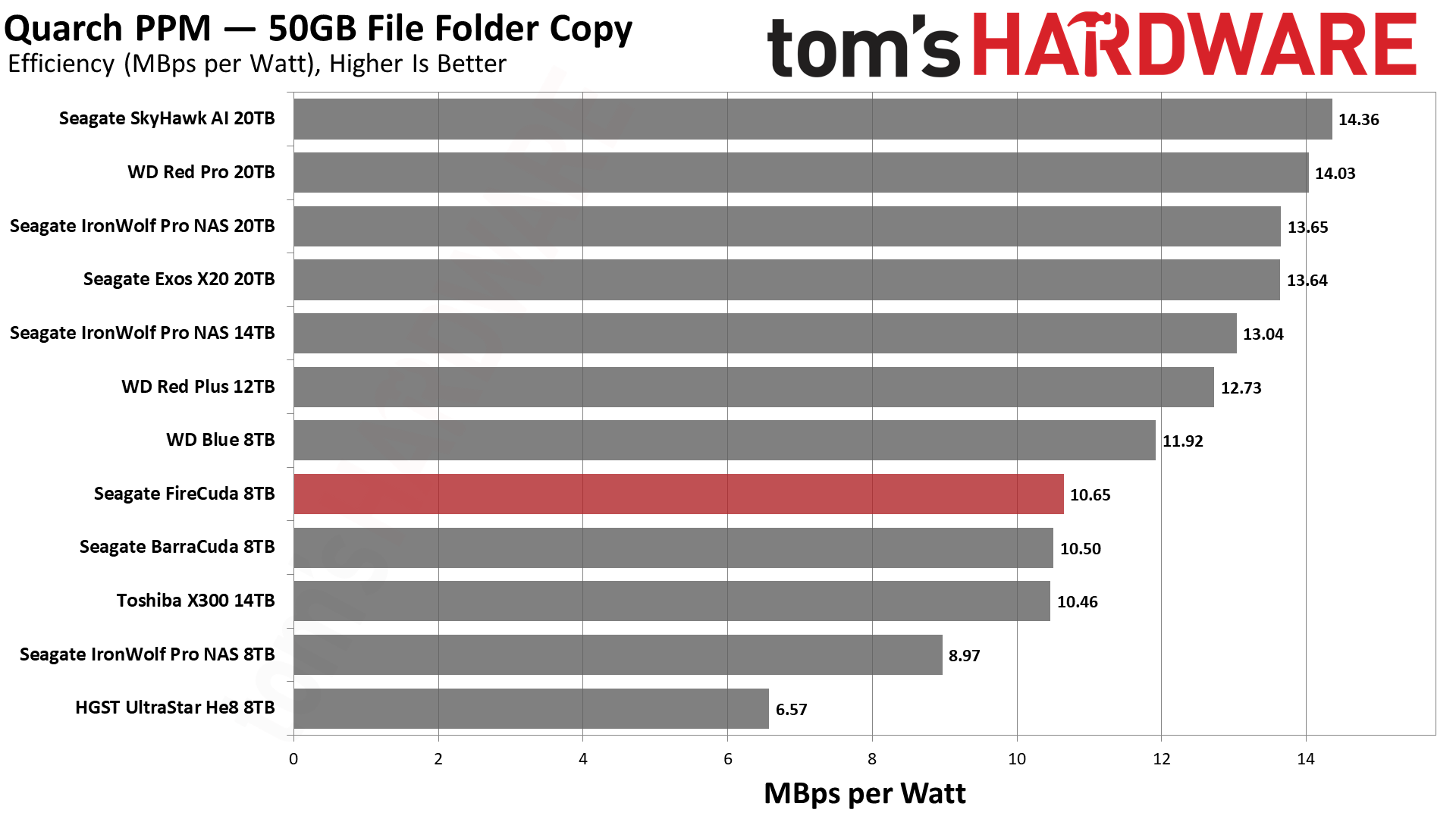
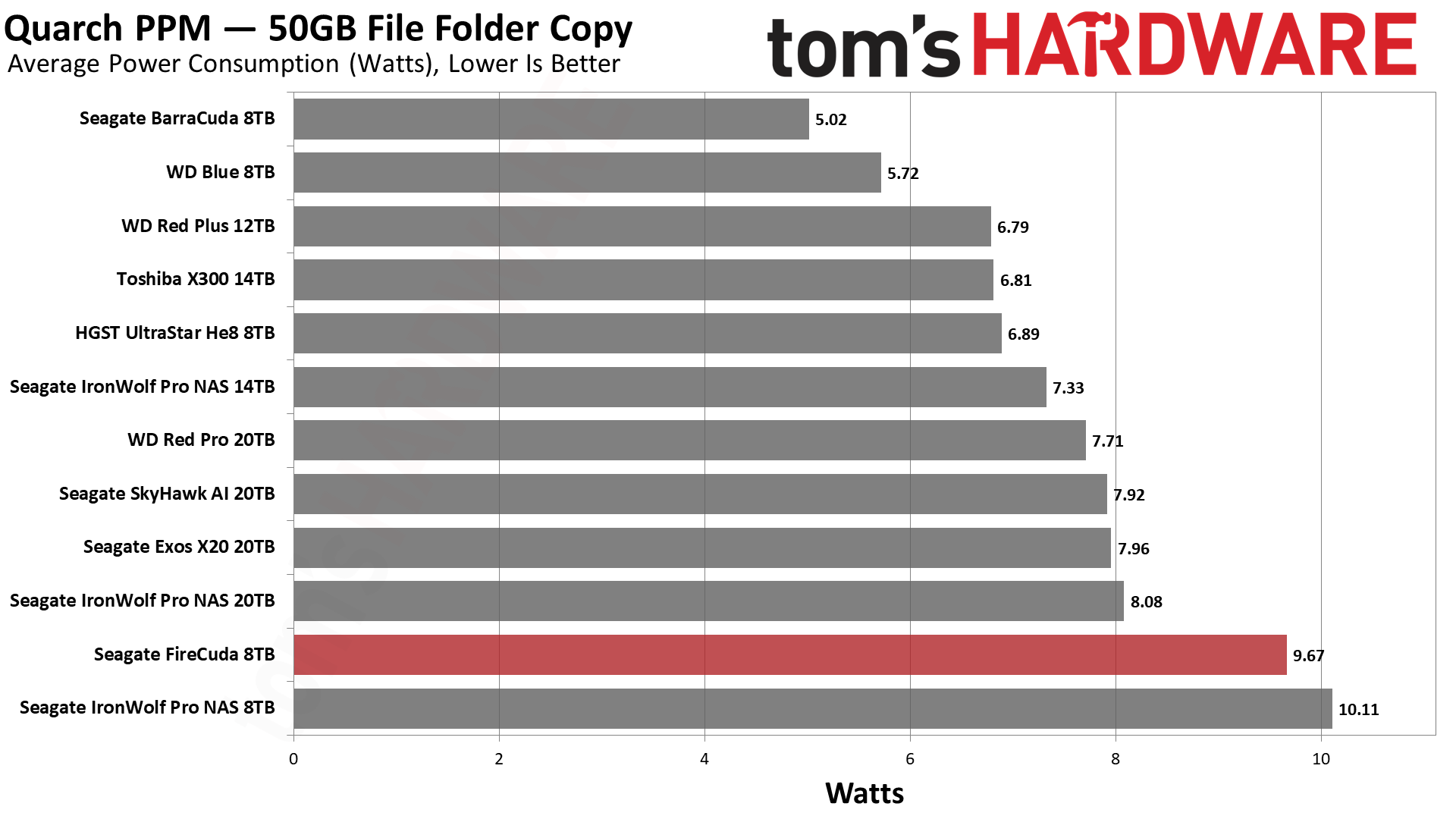
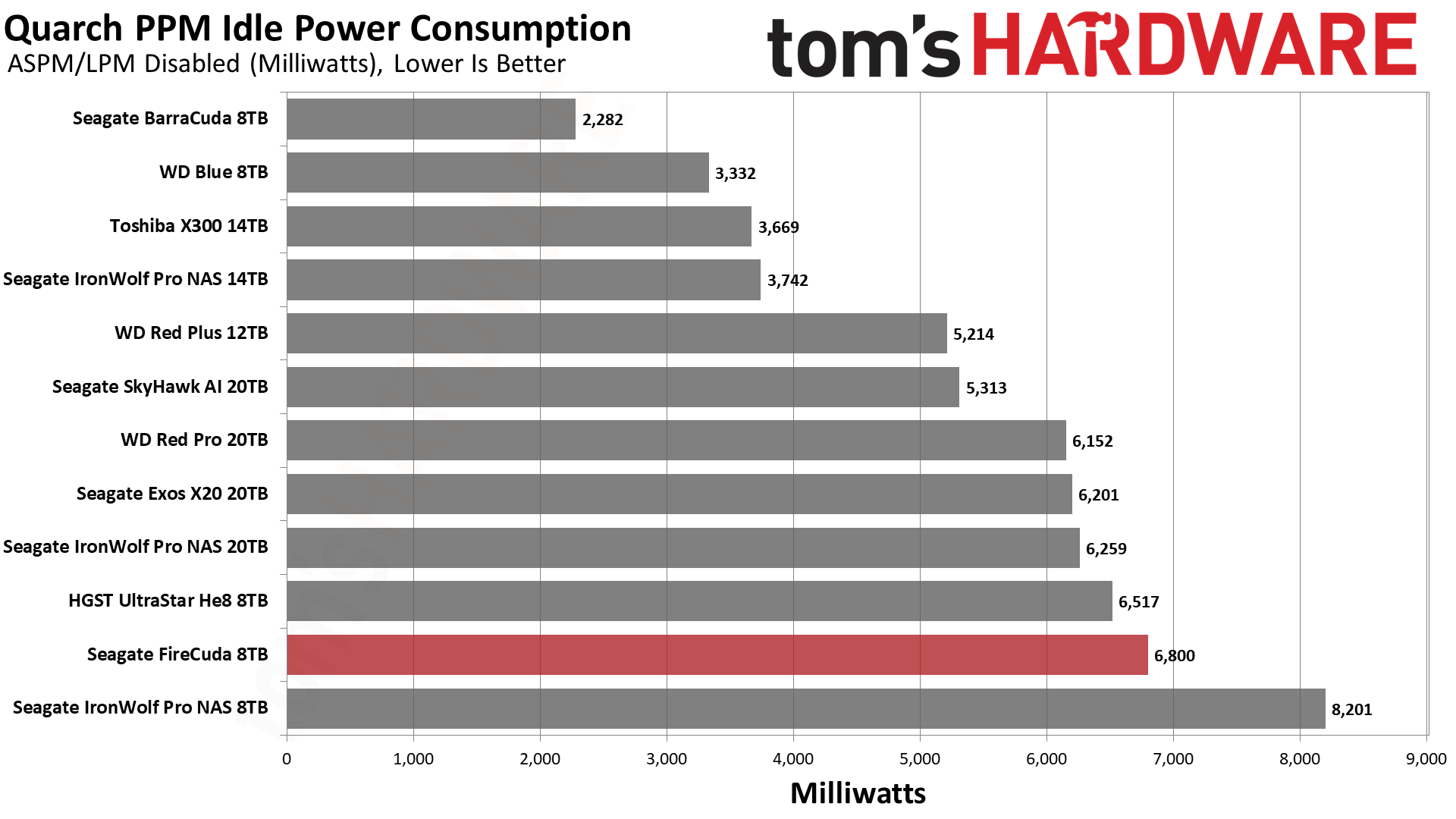
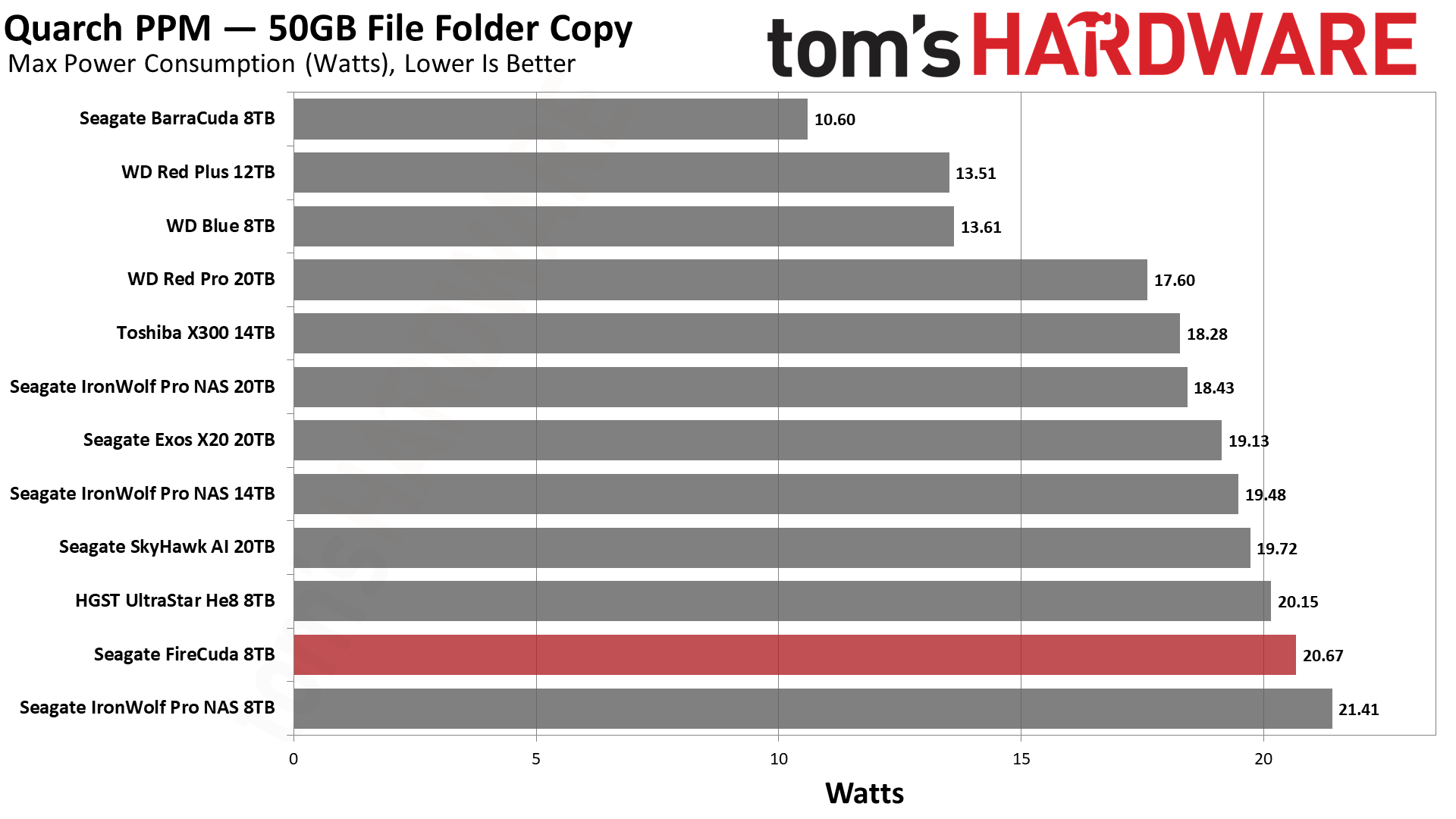
The FireCuda pulls a lot of power at peak and on average, but its high performance enables it to finish the test workload fast enough to match other 8TB drives in efficiency. The X300 looks satisfactory for efficiency if more capacity is required for desktop use, but the IronWolf Pro would be better for NAS at higher capacities.
Test Bench and Testing Notes
Conclusion
The Seagate FireCuda HDD is a basic, meat-and-potatoes mechanical hard drive. It hits the right notes with CMR technology and a 7200-RPM spindle speed, has a solid warranty and software support and is affordable at the 8TB sweet spot. It doesn’t perform well in all tests, and the WD Black would generally be the preferred pick for a high-performance desktop solution, but the FireCuda is better than the other alternatives and has unmatched three-year data recovery services included. The FireCuda is also certainly faster than lower RPM drives like the WD Blue, although there are uses for lower-tier 5400-RPM drives like that.
The FireCuda is a solid drop-in HDD with strong software support, a good five-year warranty, and three years of data recovery services. Although marketed for gaming, this drive is best suited for storing media and backups, especially given the great pricing you can currently find on the best SSDs on the market.
Seagate doesn’t complicate this model, so it’s only available at 4TB and 8TB, which is fine as these are the two most popular capacities for desktop PCs. However, these capacities can be limiting, so you will have to reach for the IronWolf series to get better density.
On the whole, there is little to dislike about the FireCuda, and we can recommend it as a basic desktop storage solution. It’s an easy choice, and that’s perfect for its spot in the market. There are better options if you’re looking for something more specific or niche. Still, for general use, the 8TB Seagate FireCuda is a simple way to add a considerable amount of storage to your system without any headaches.
MORE: Best SSDs
MORE: Best External SSDs and Hard Drives
MORE: How We Test HDDs And SSDs
MORE: All SSD Content







